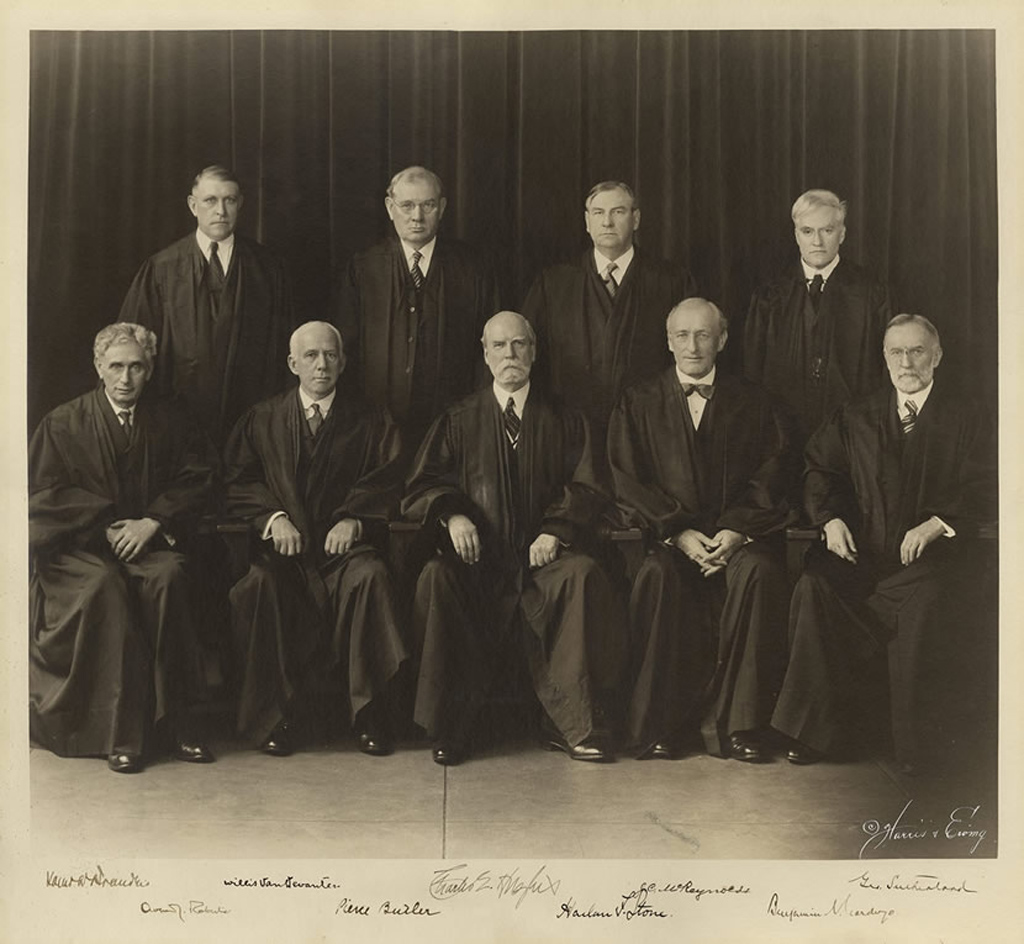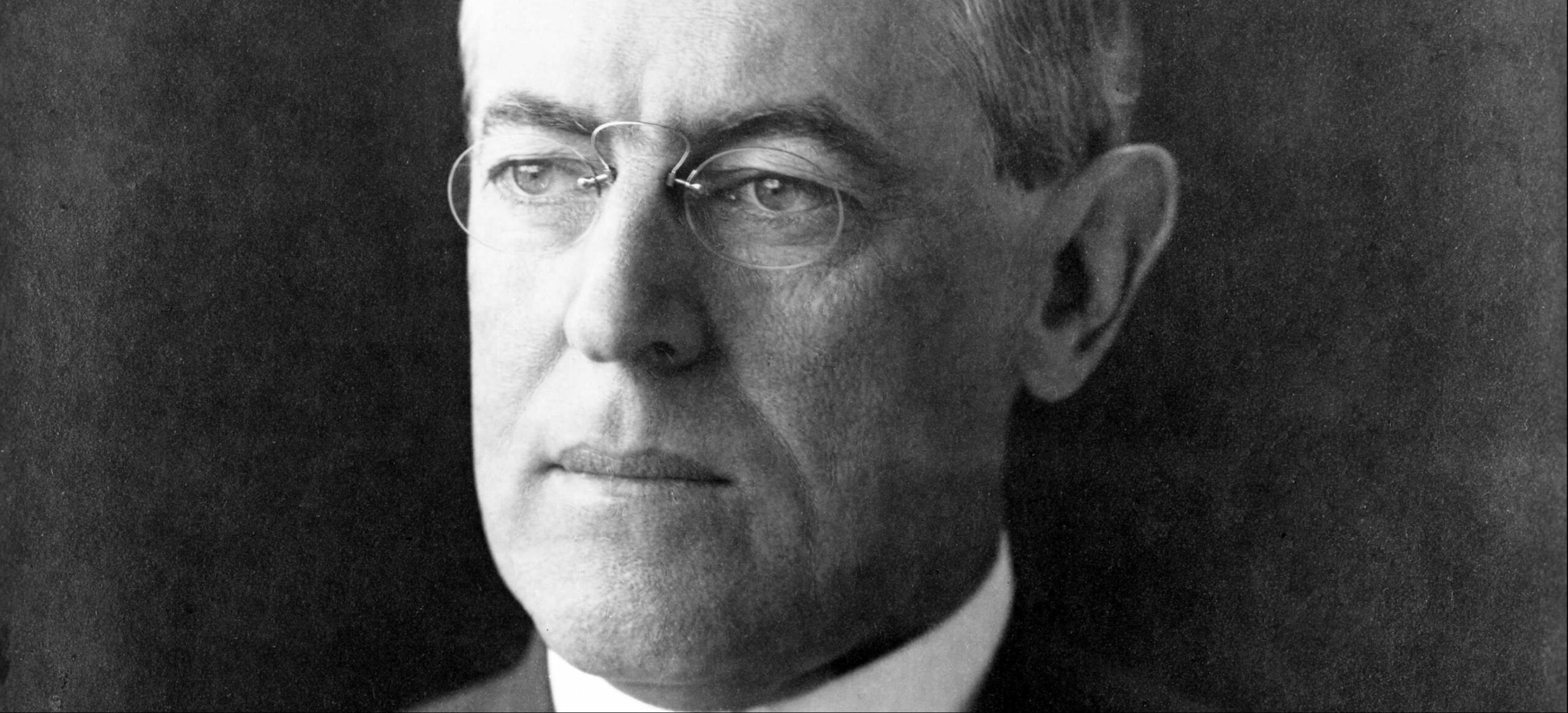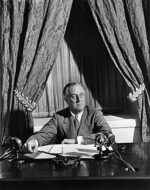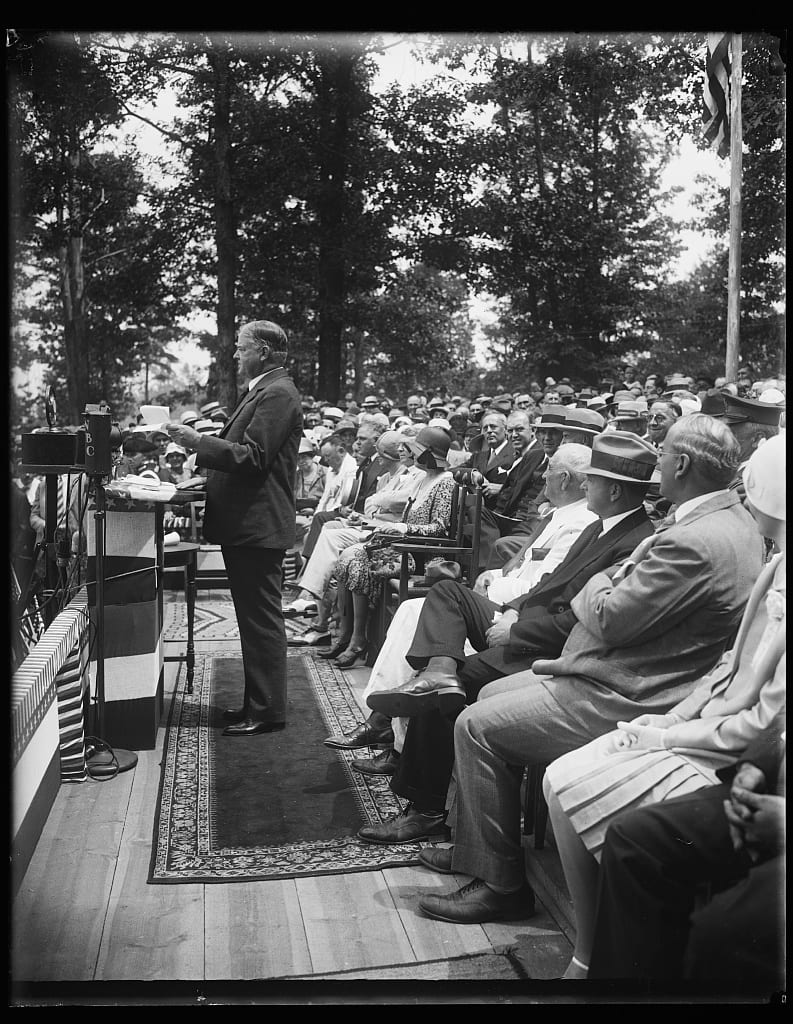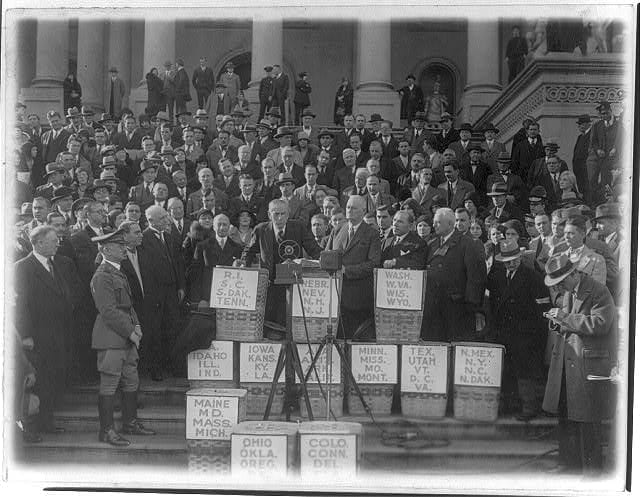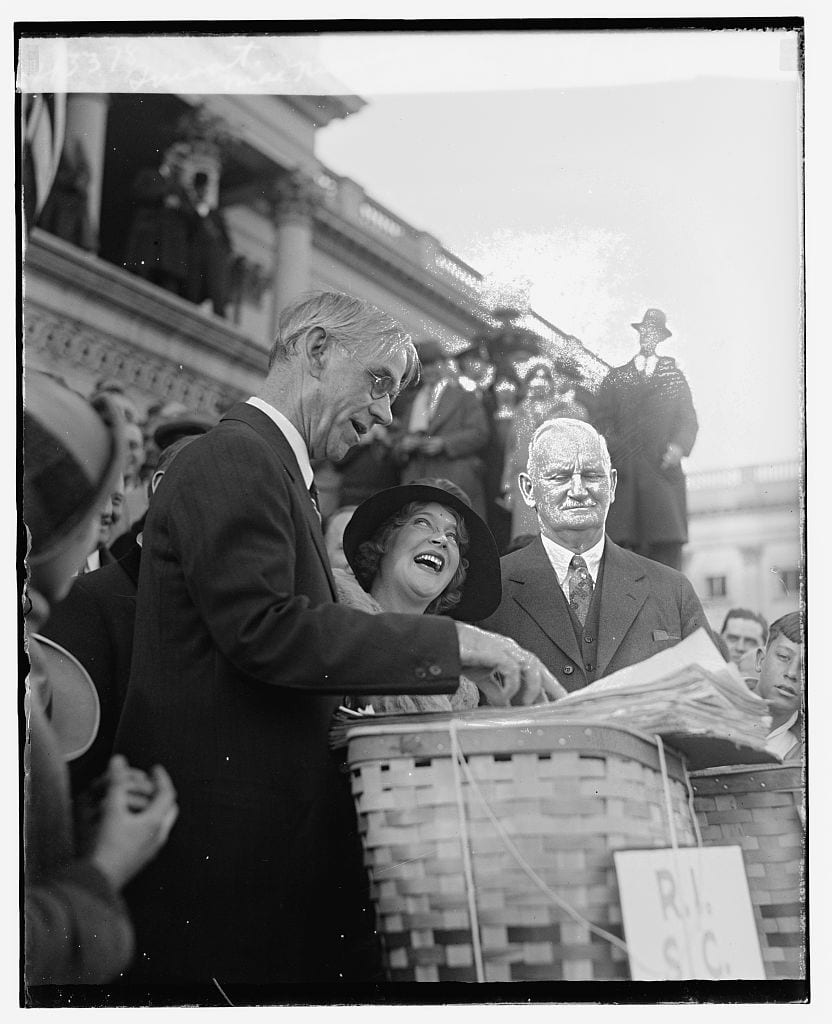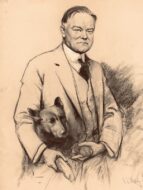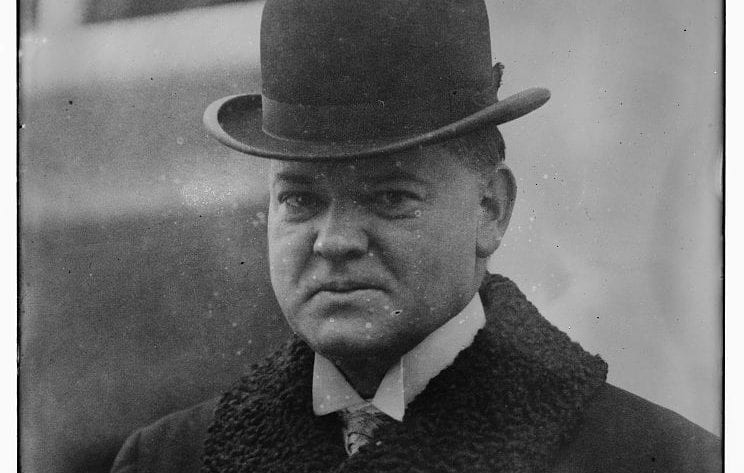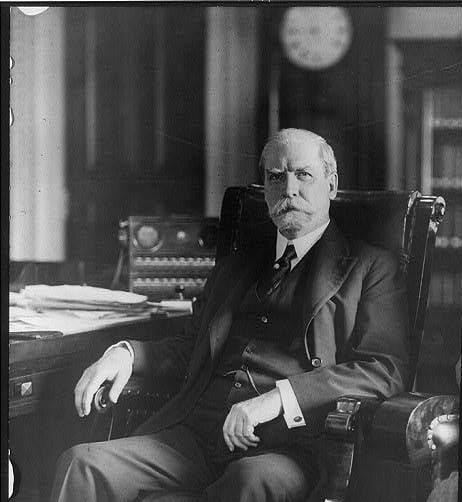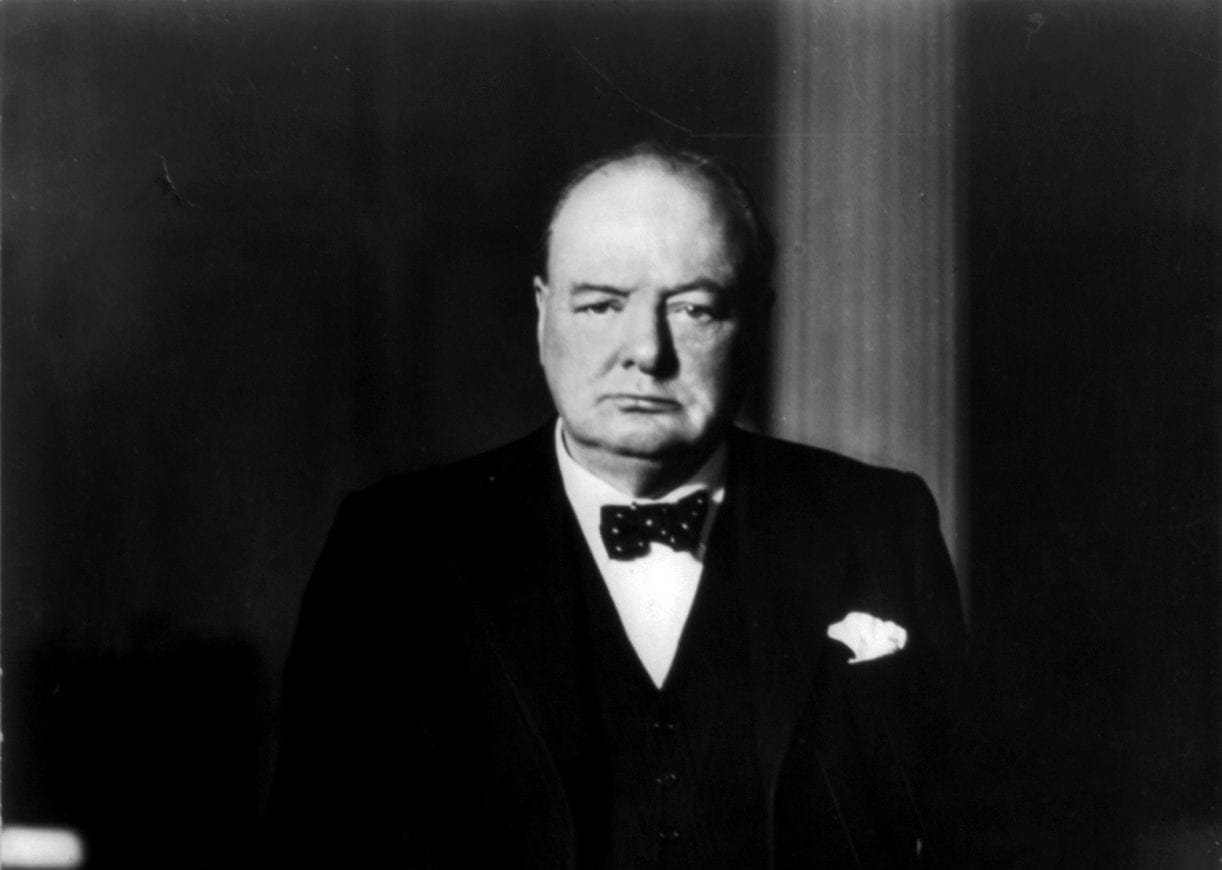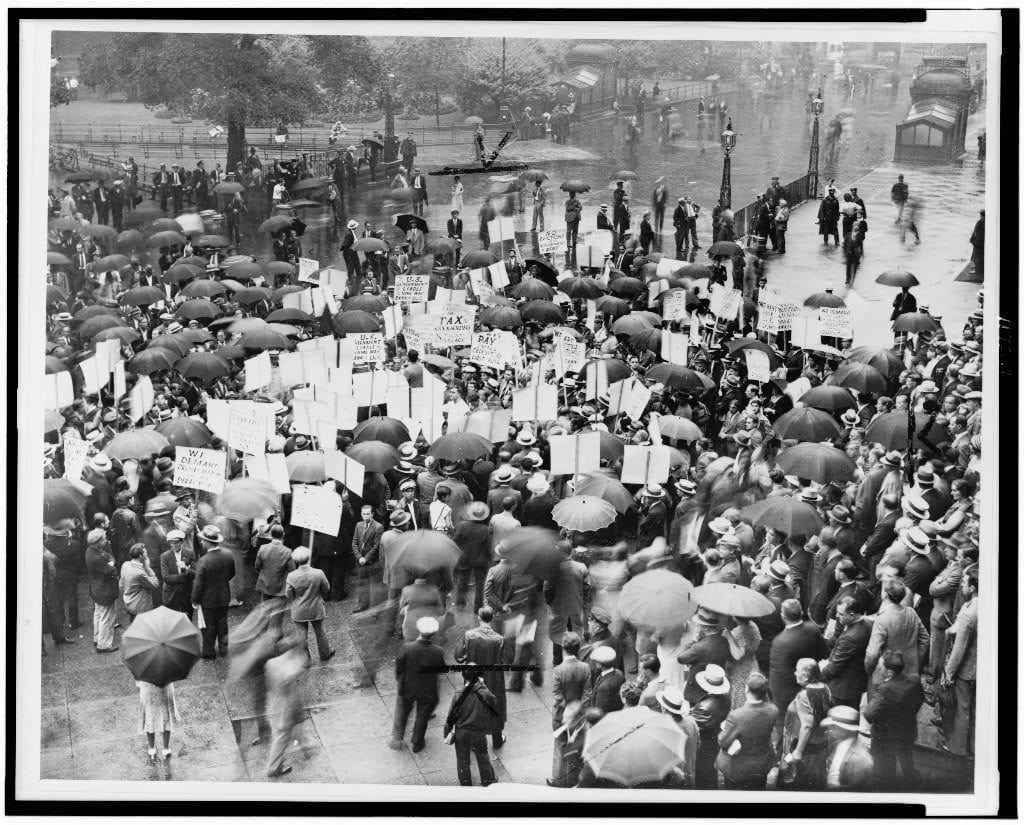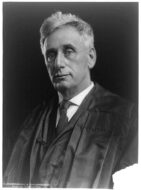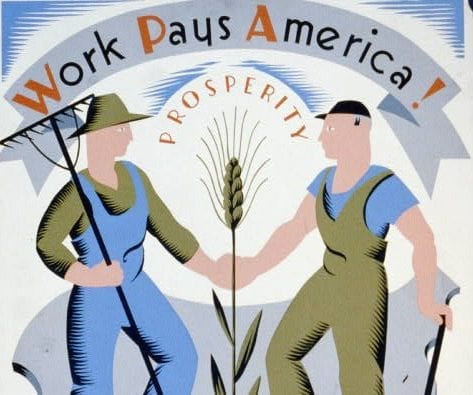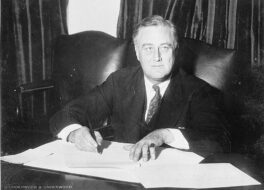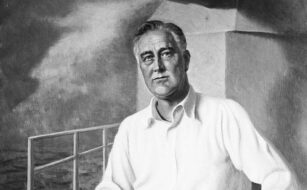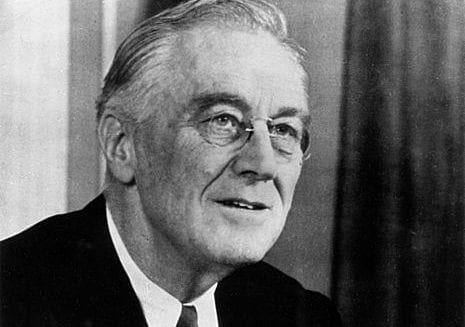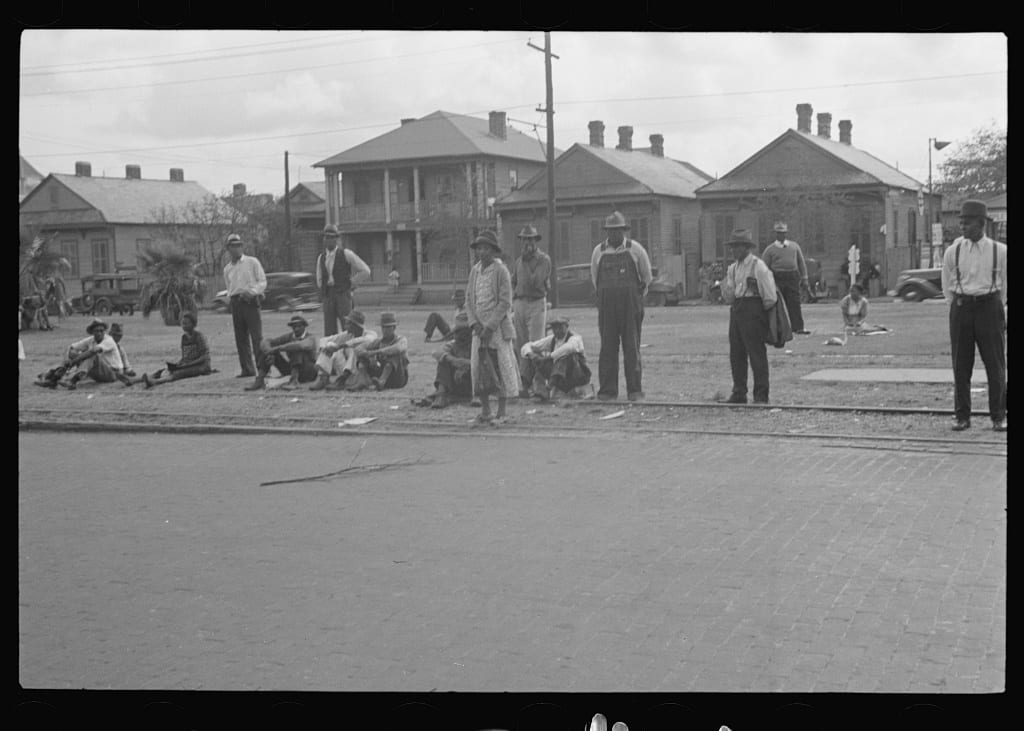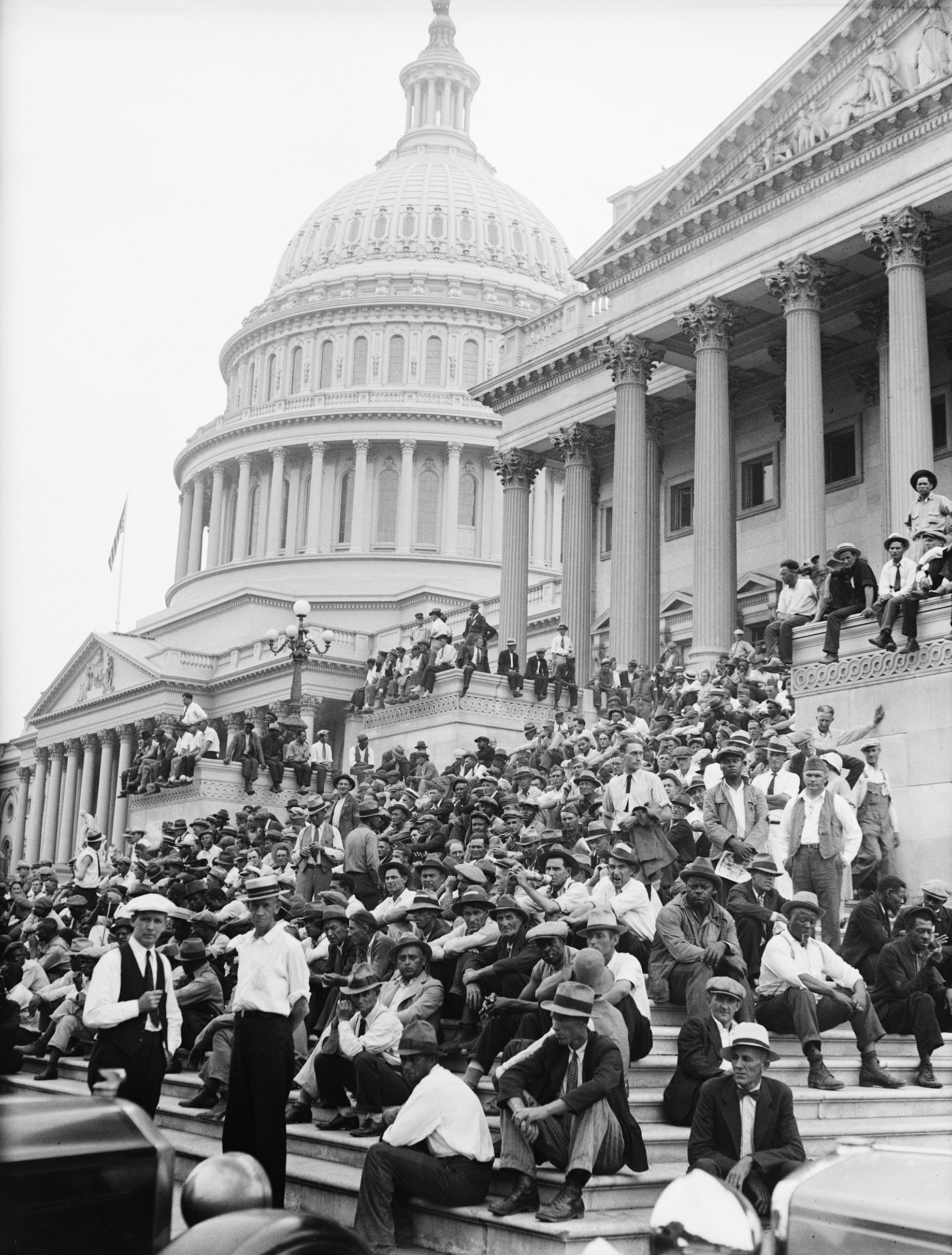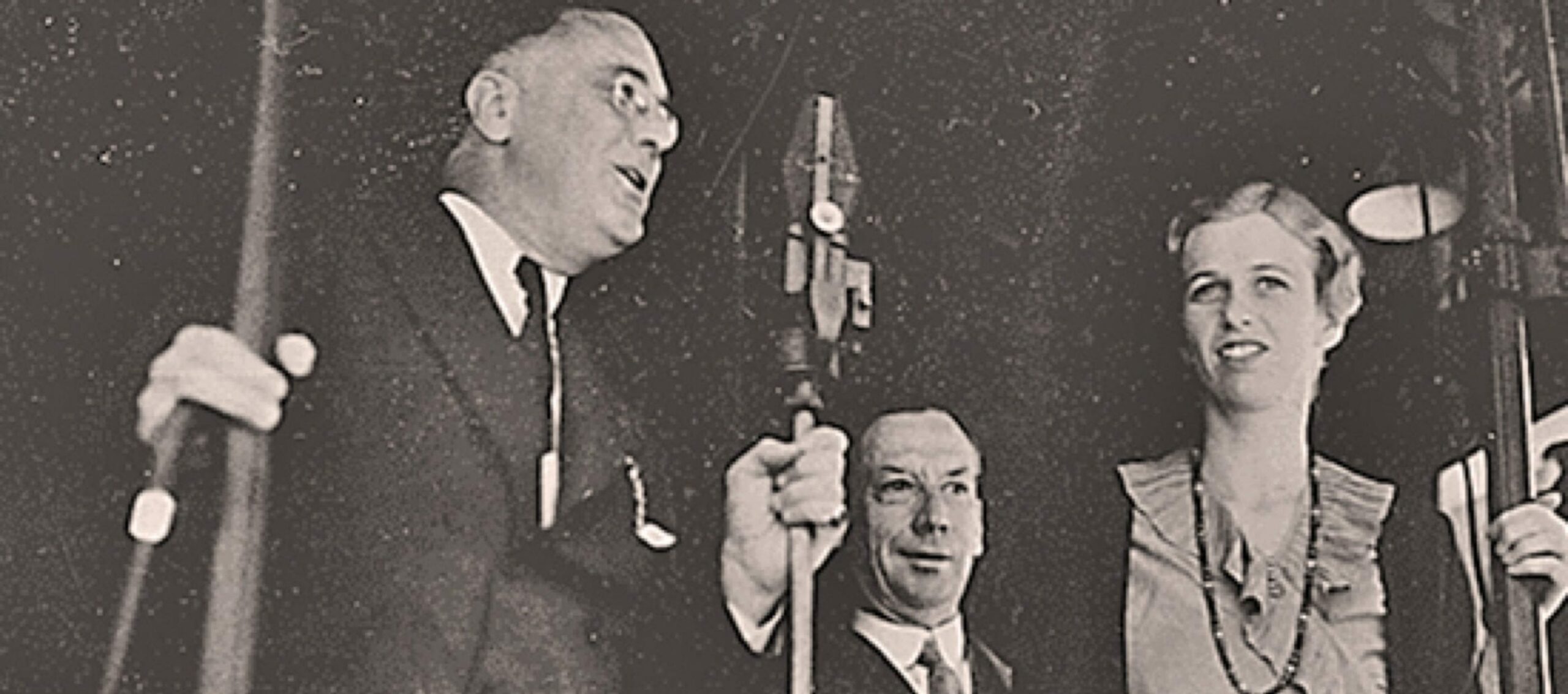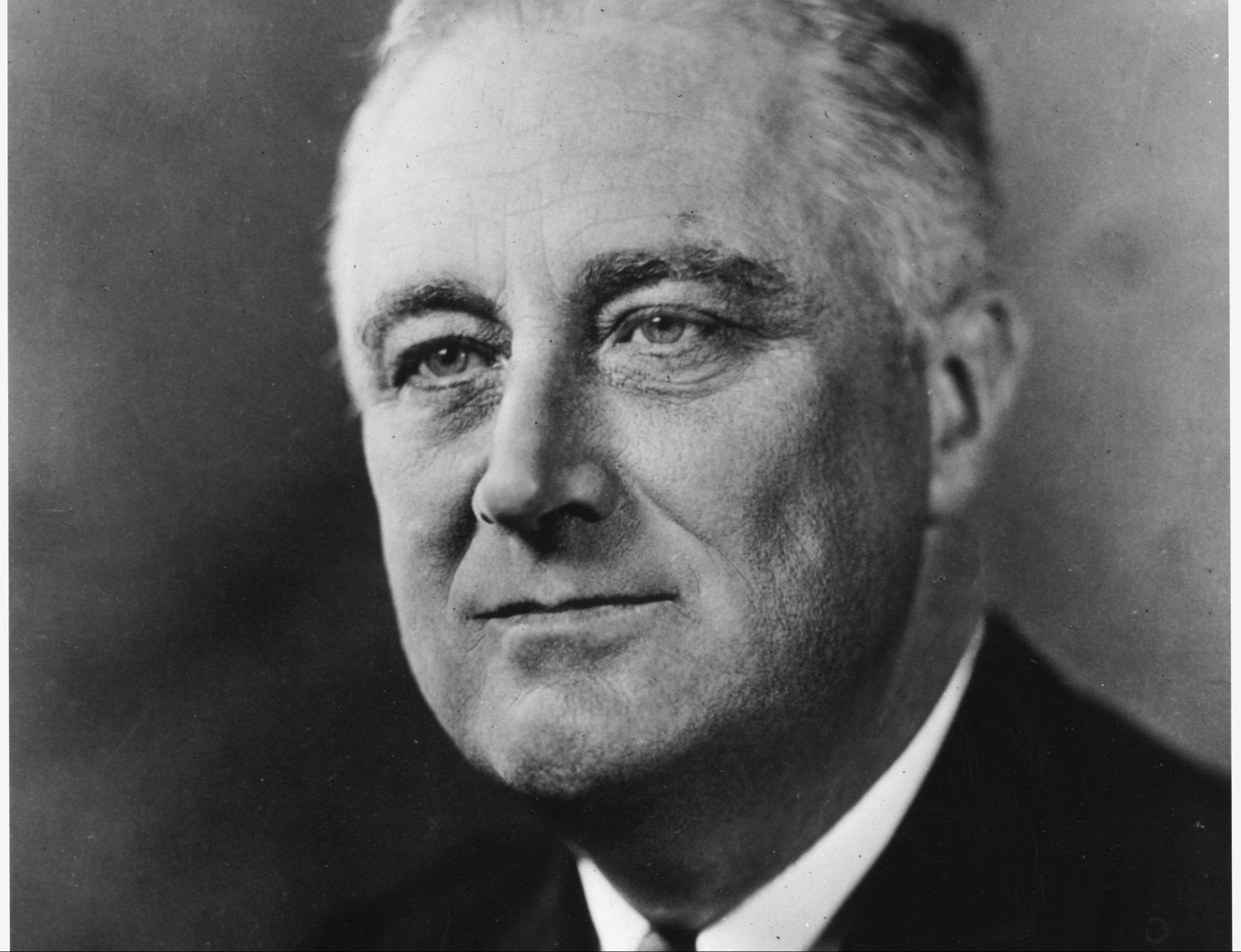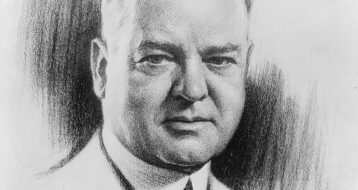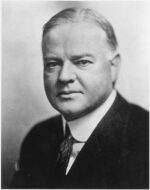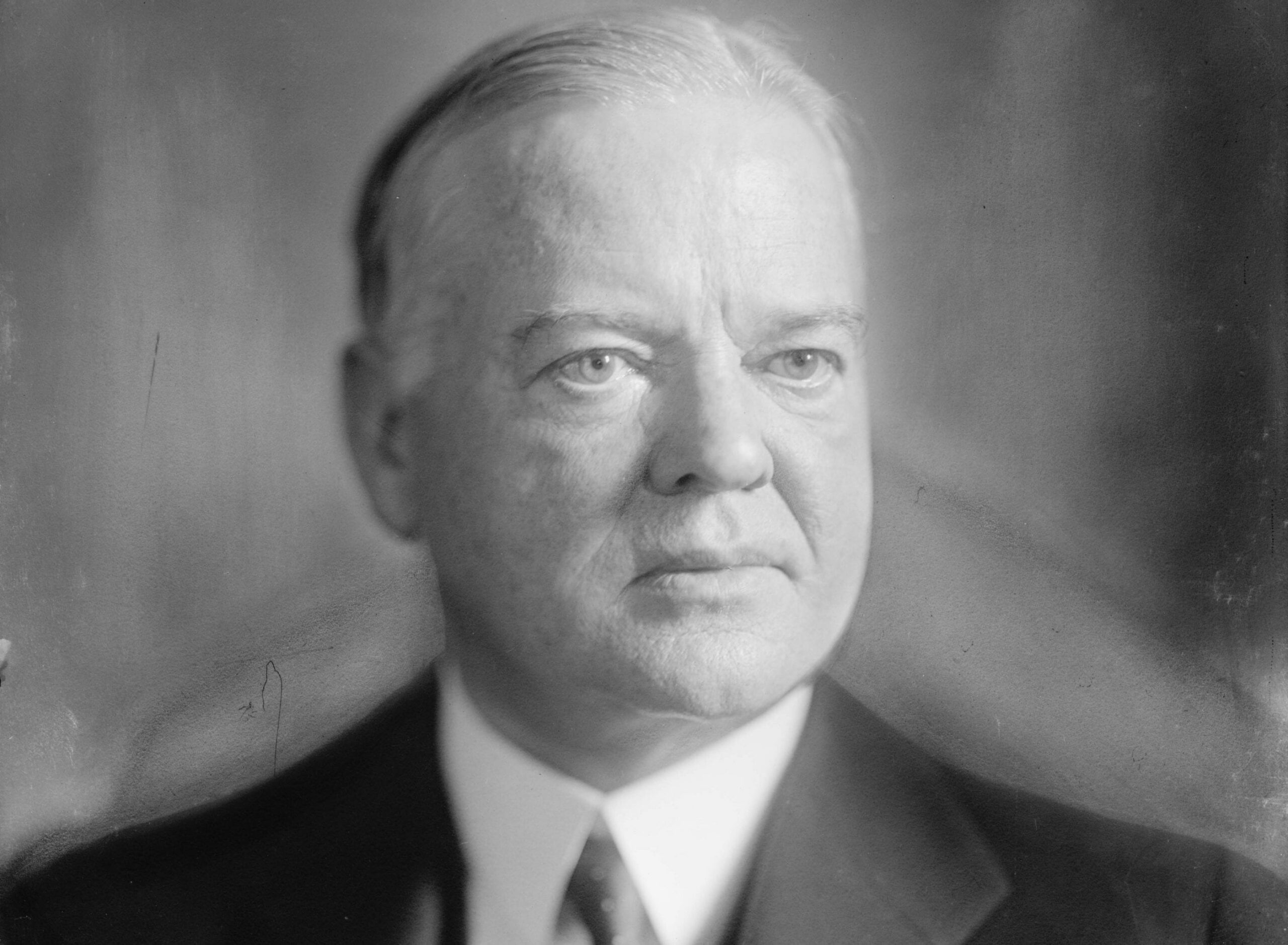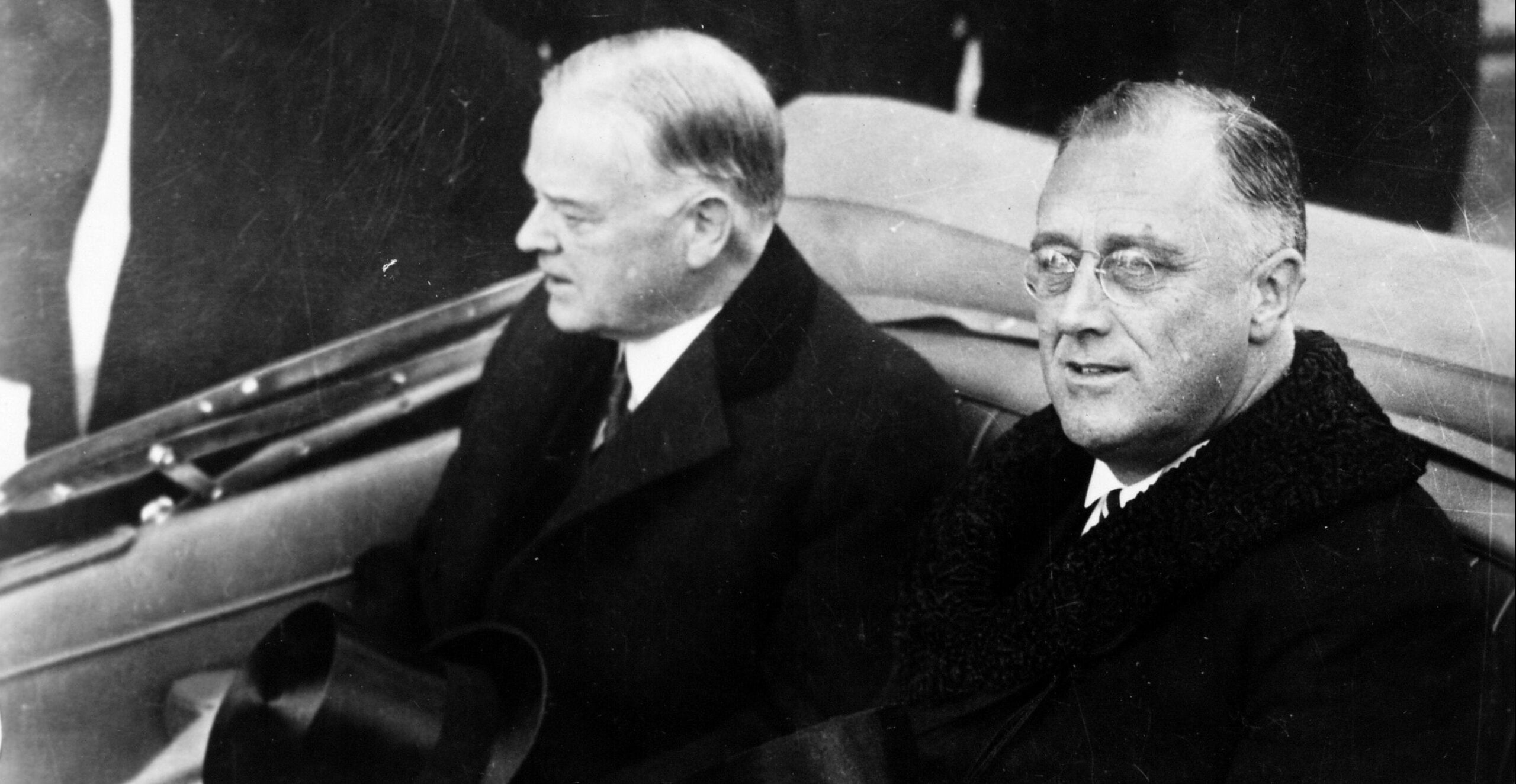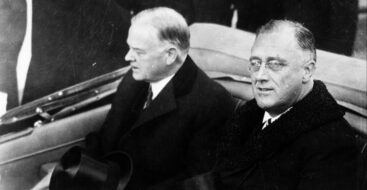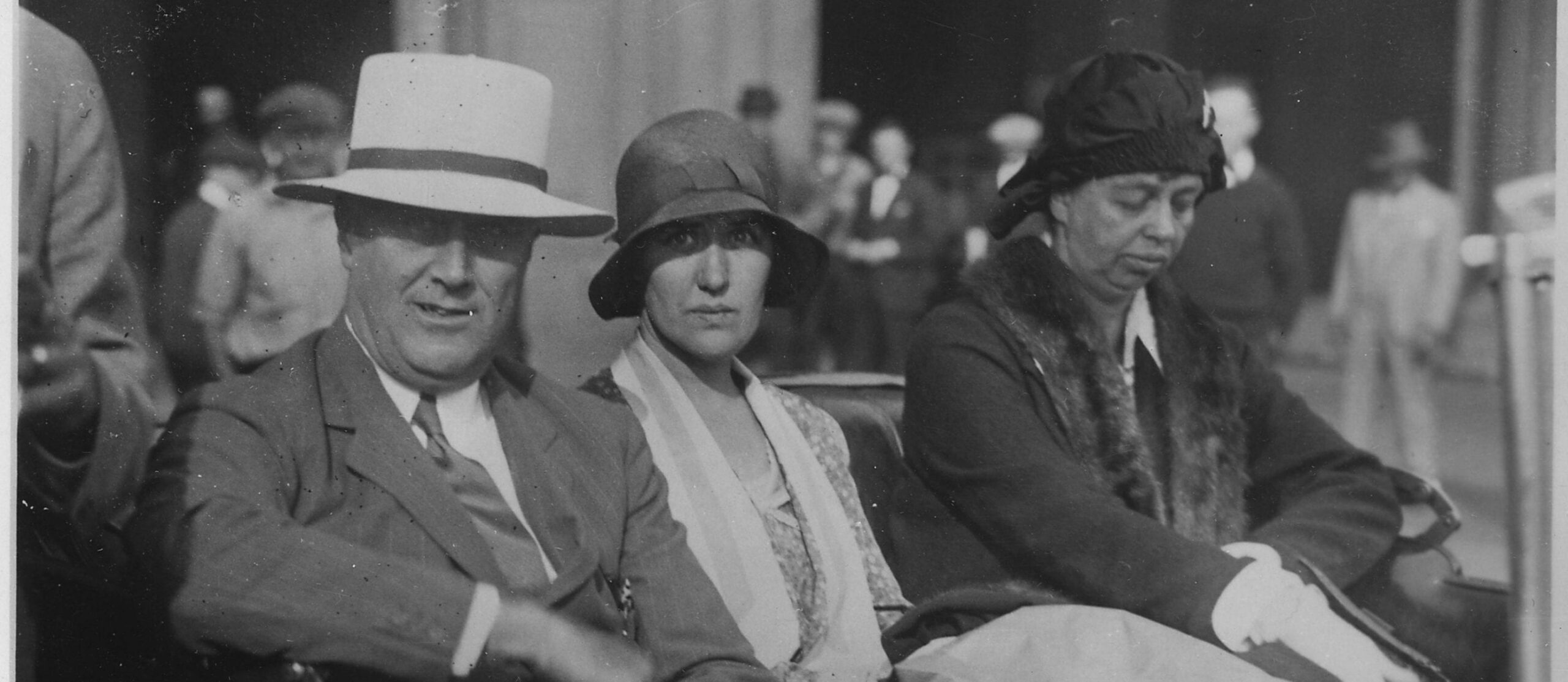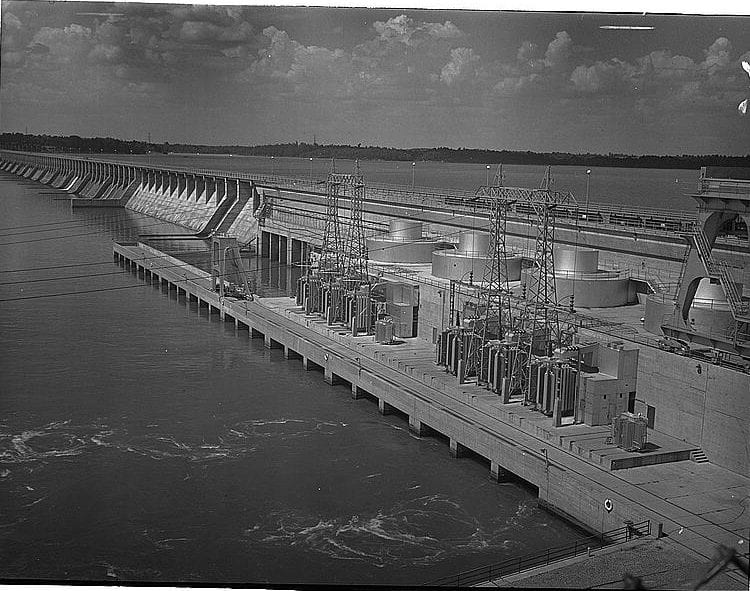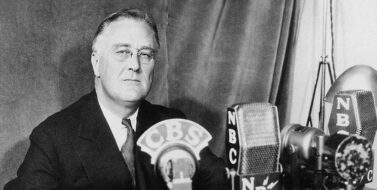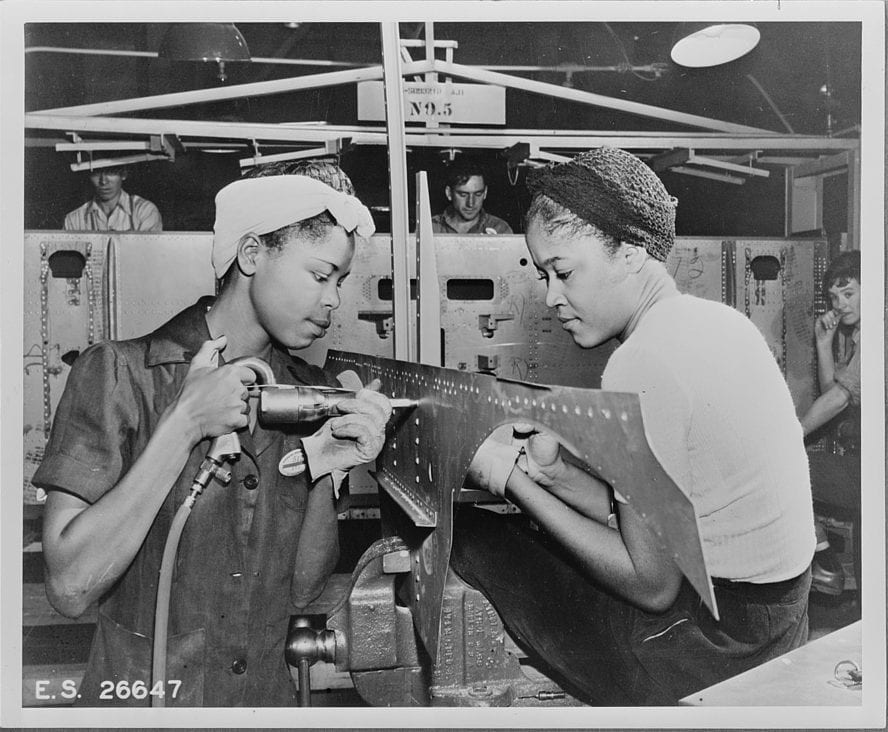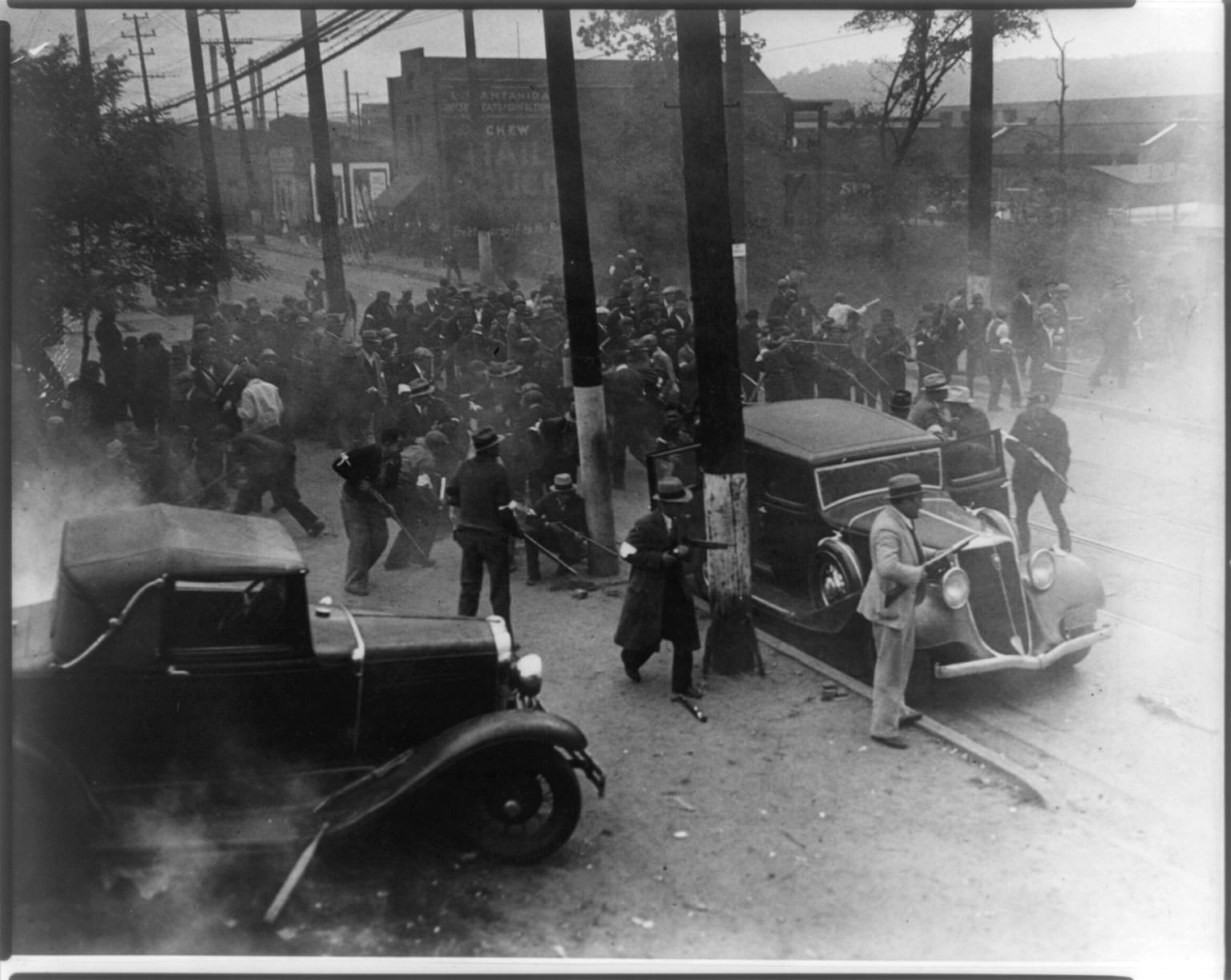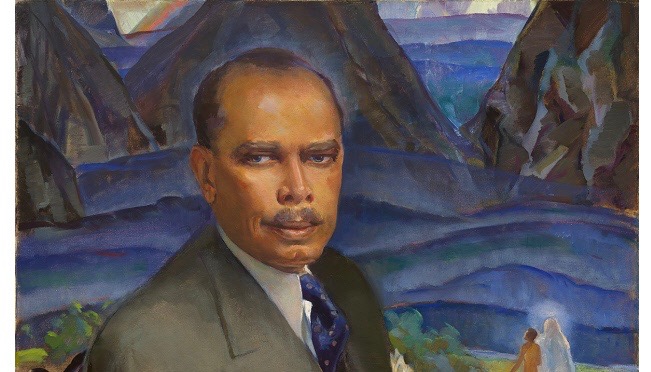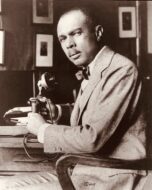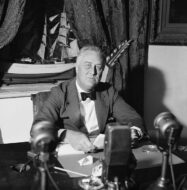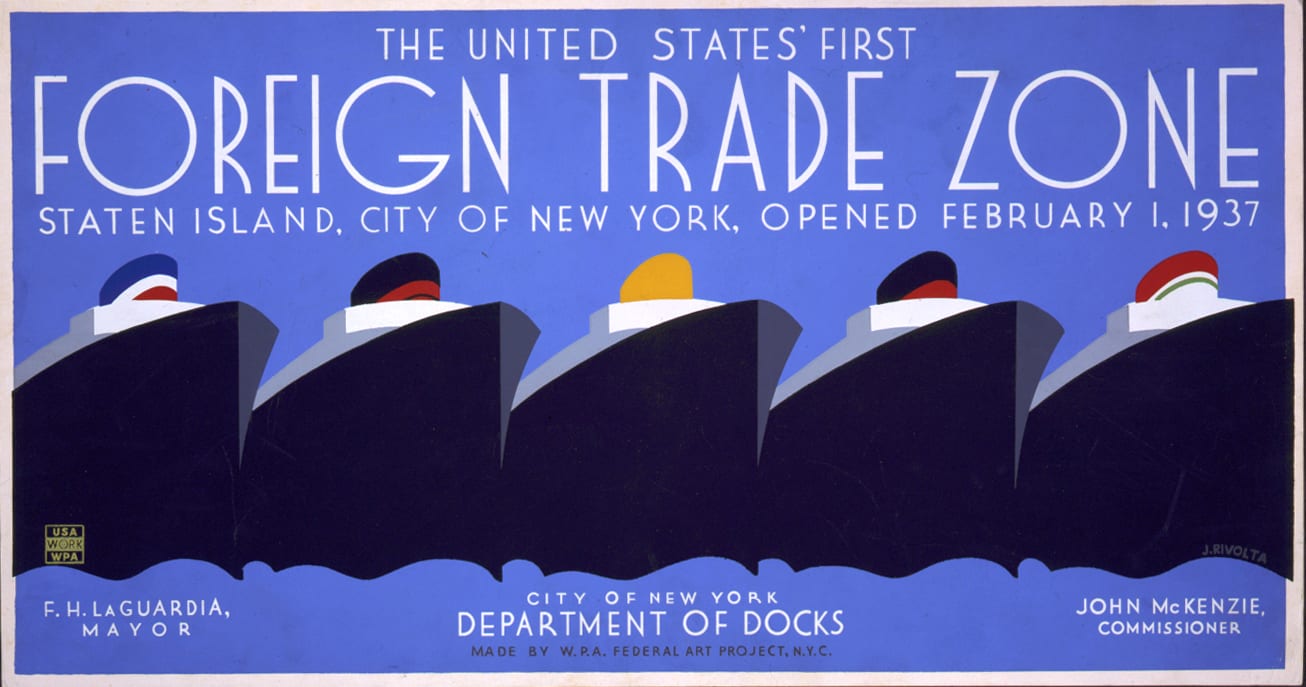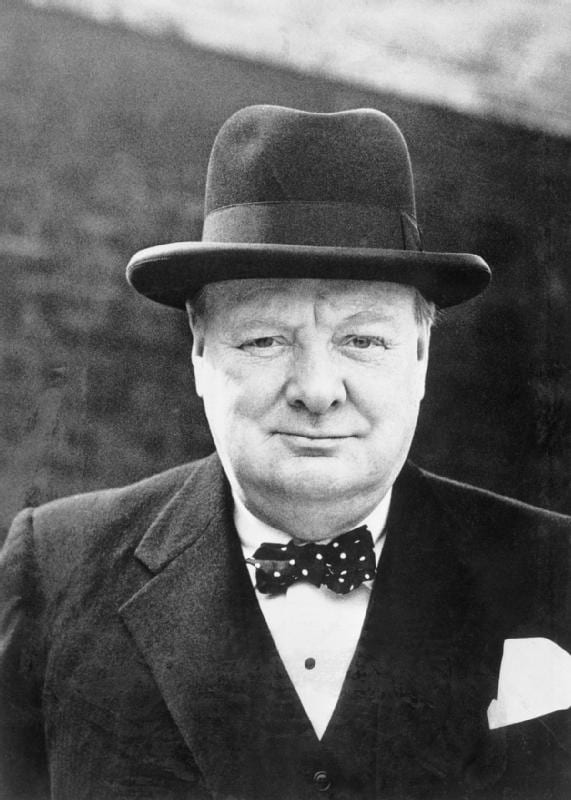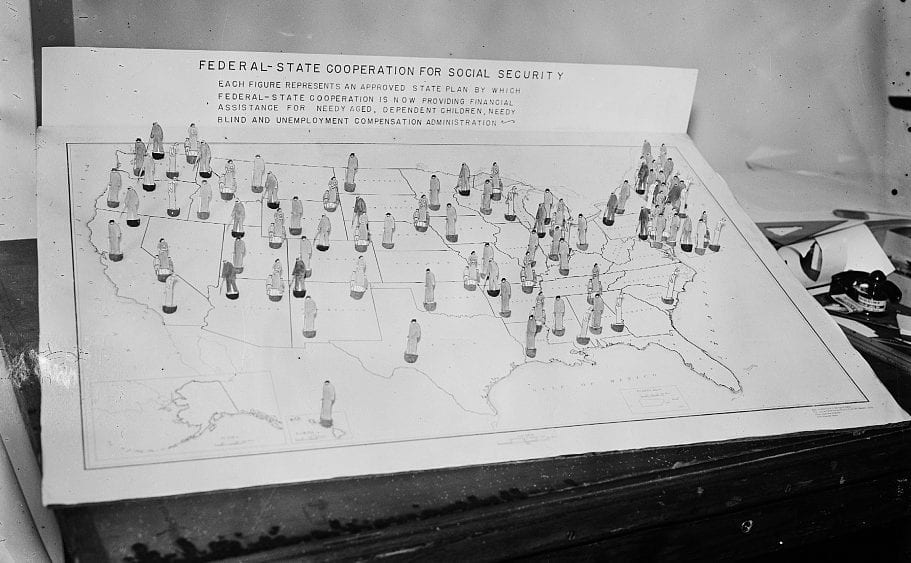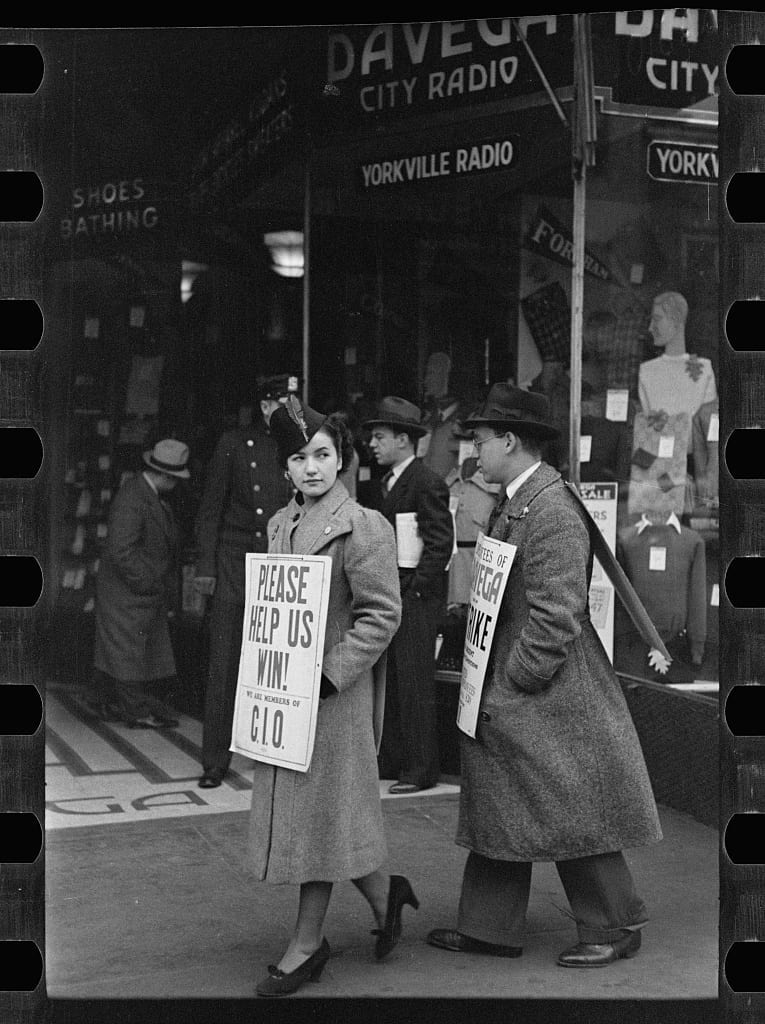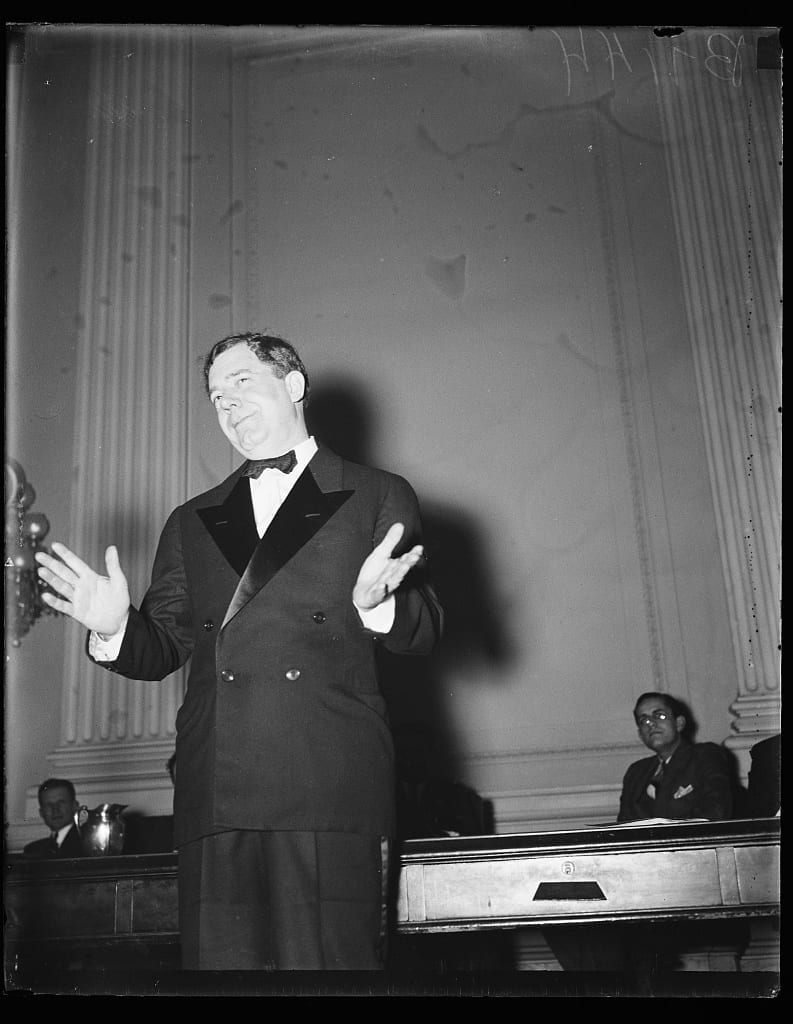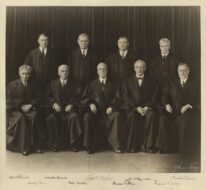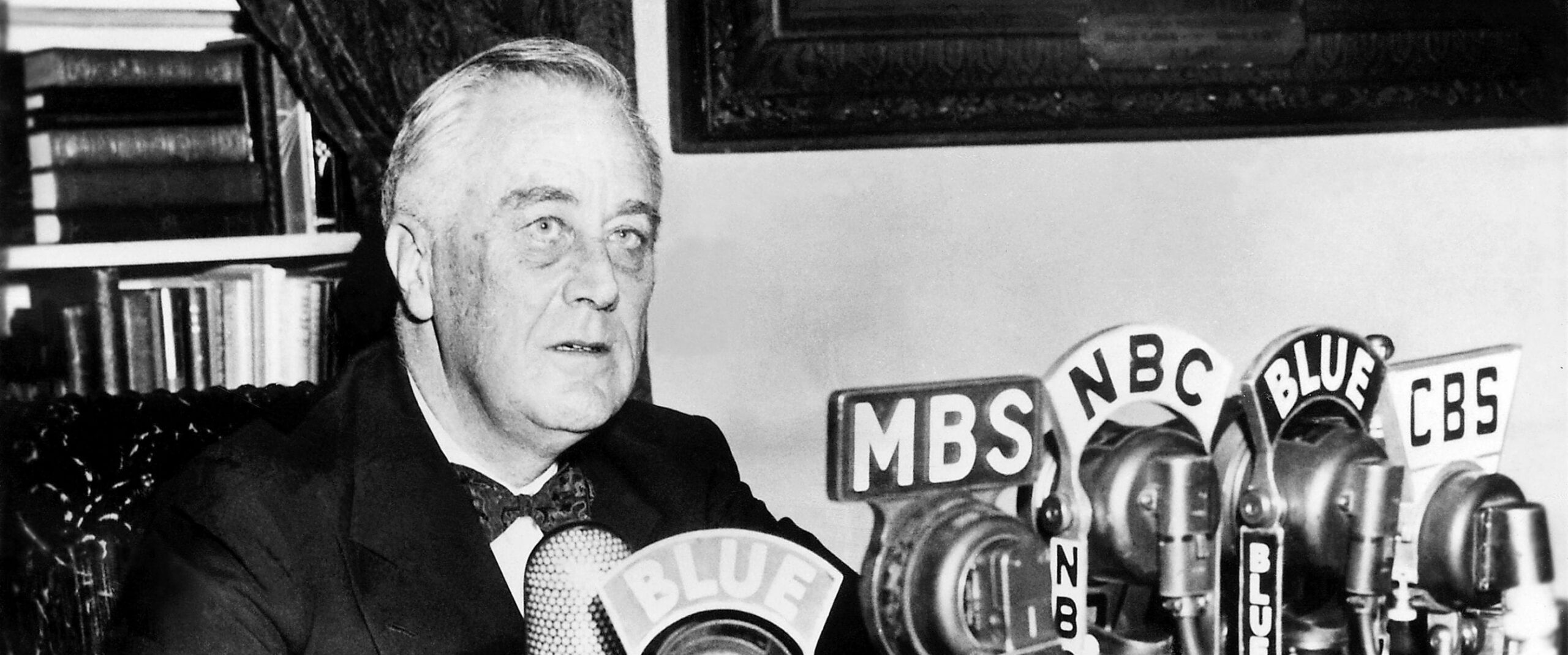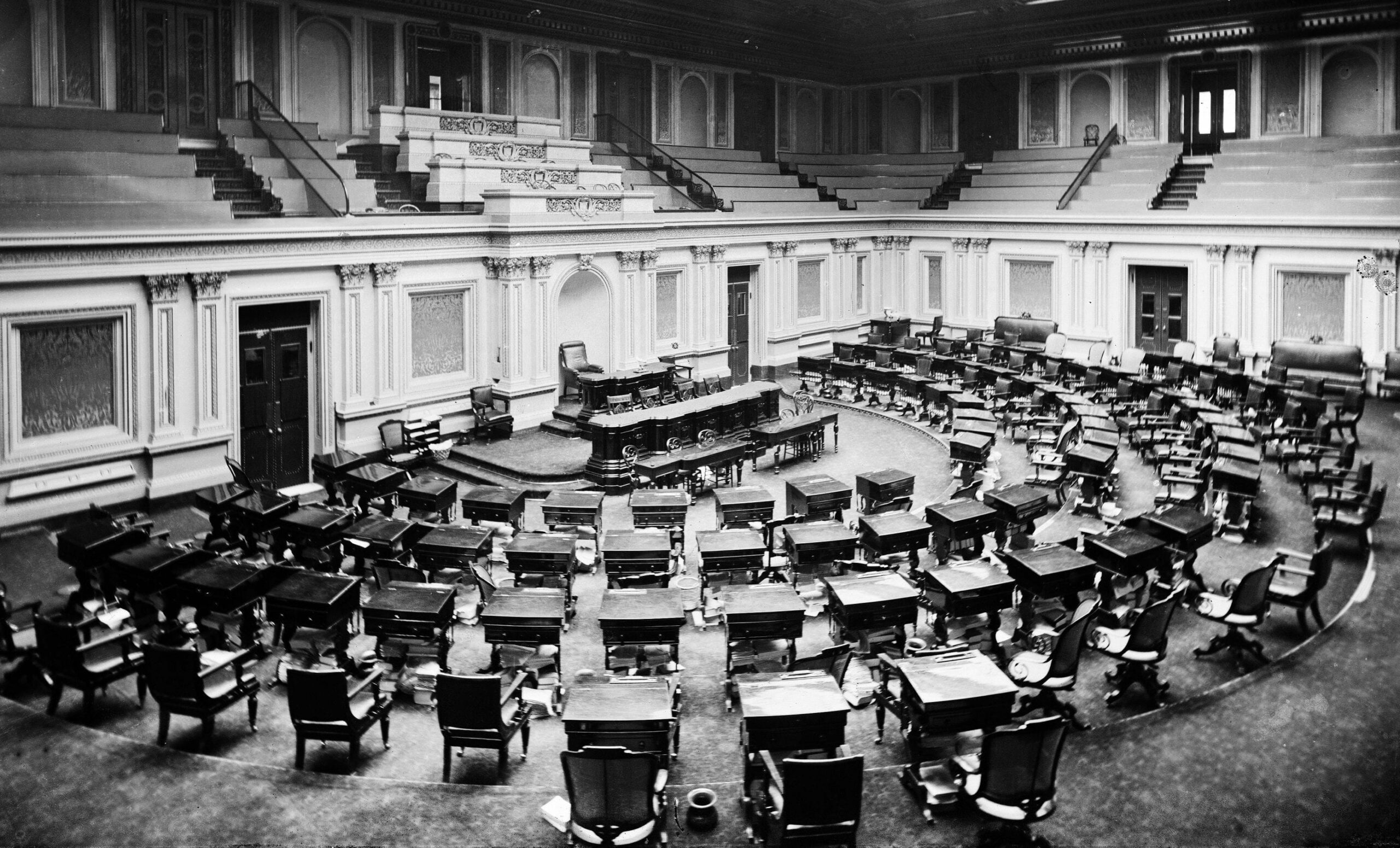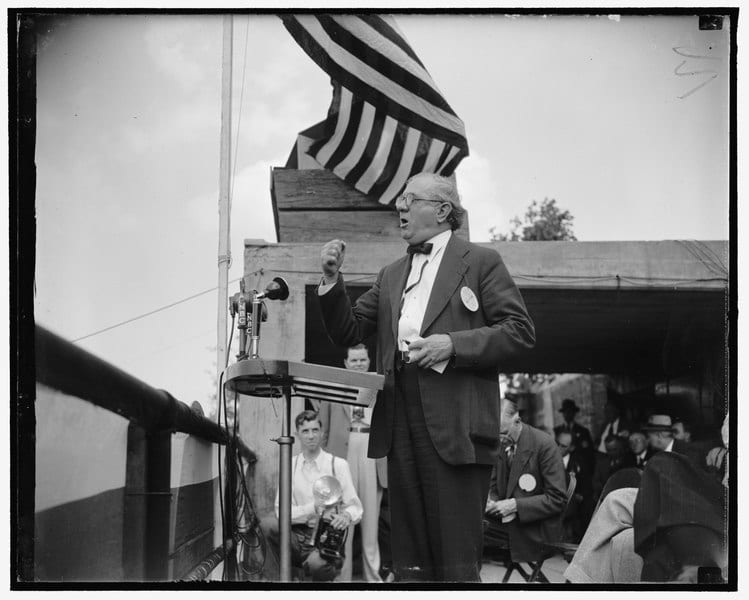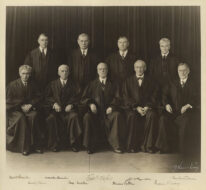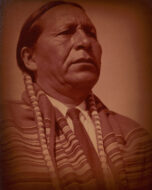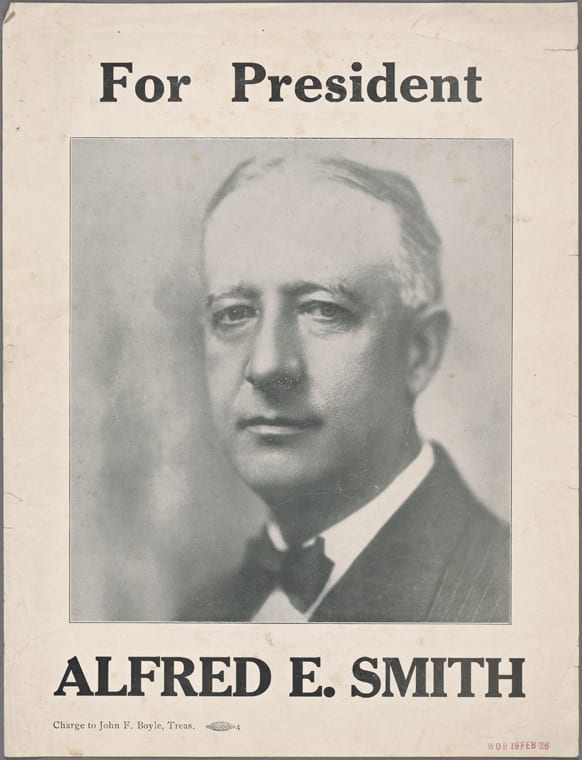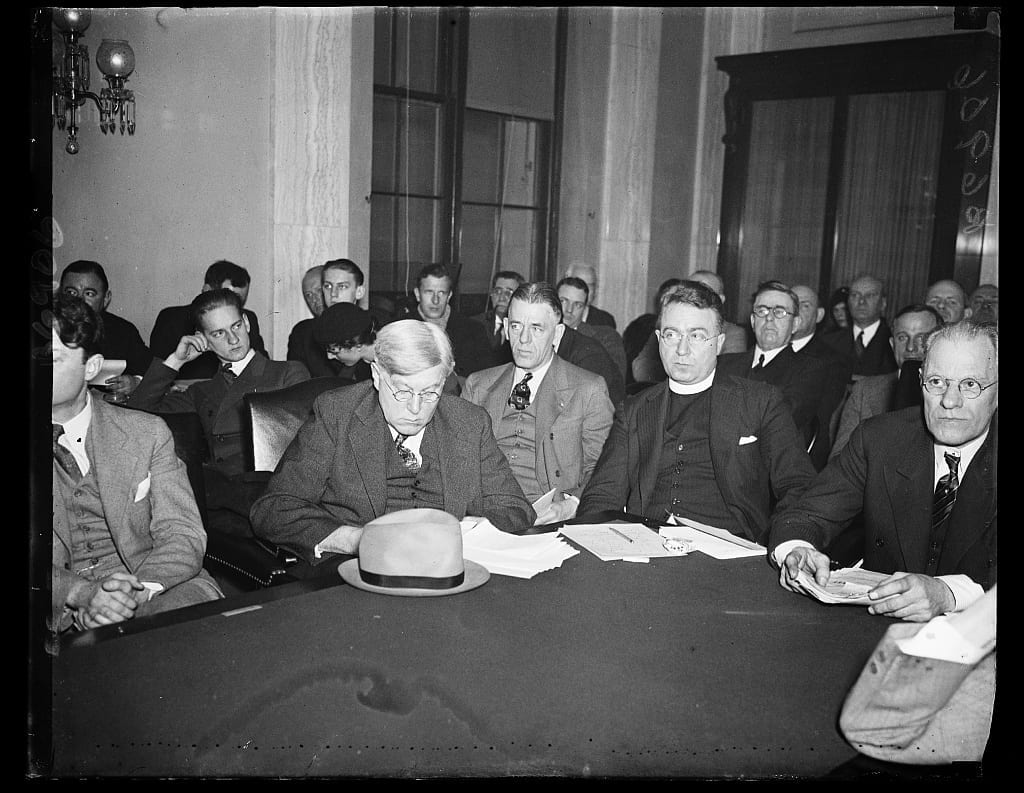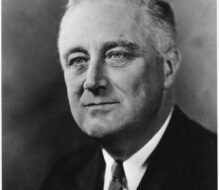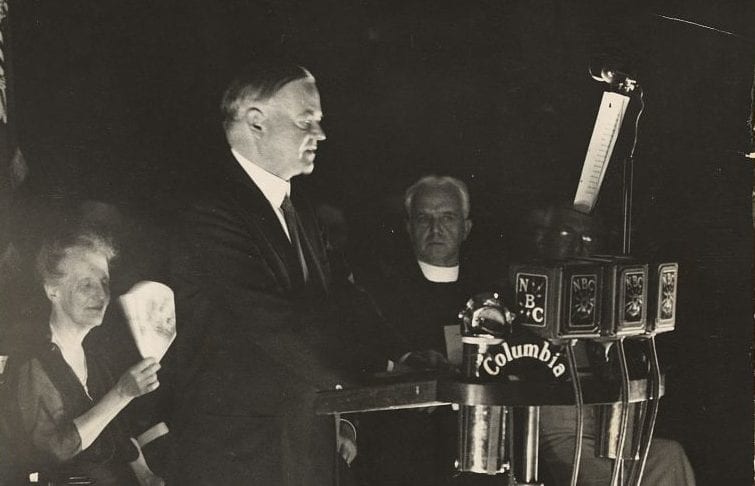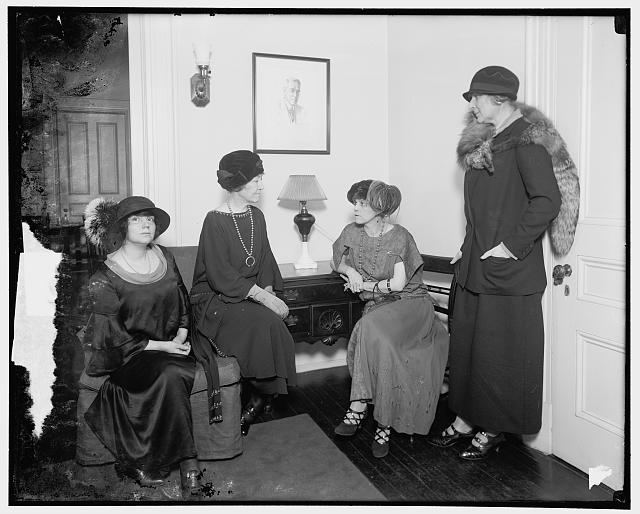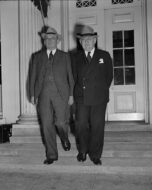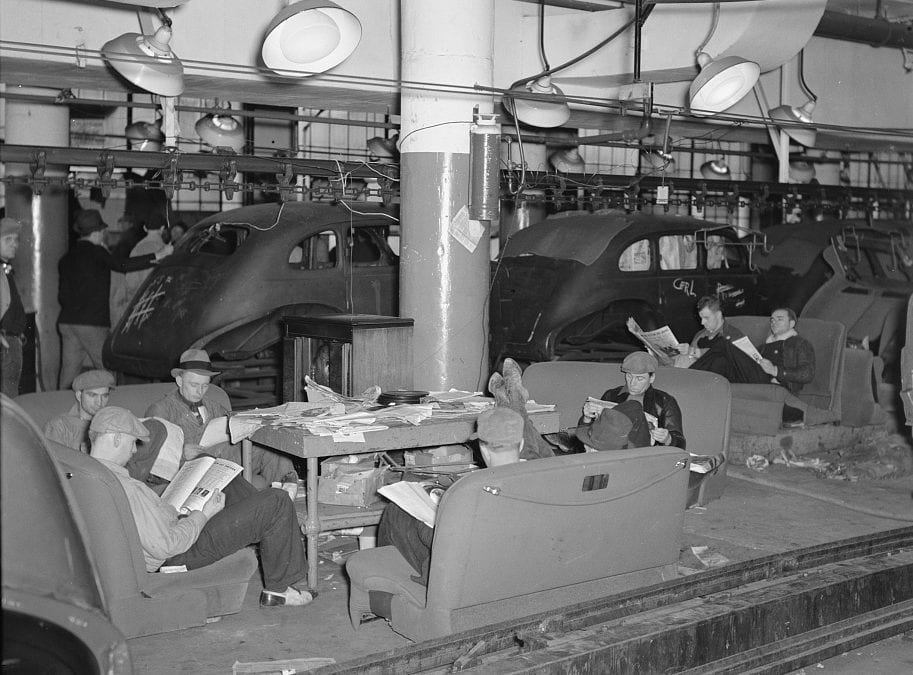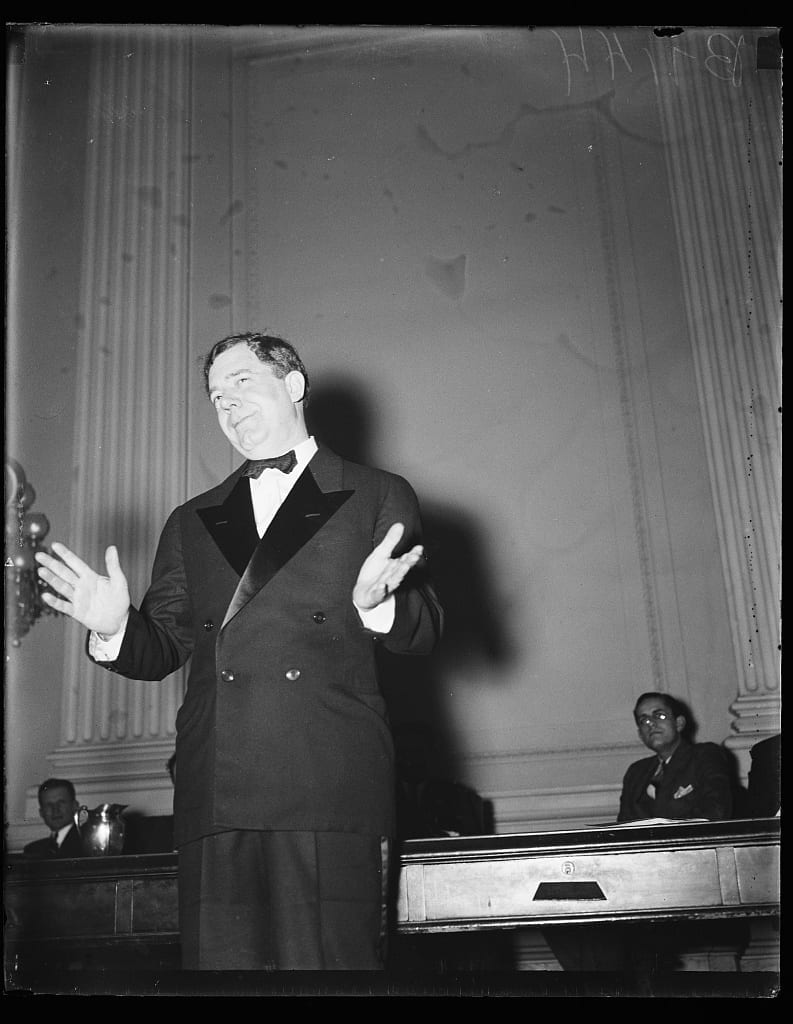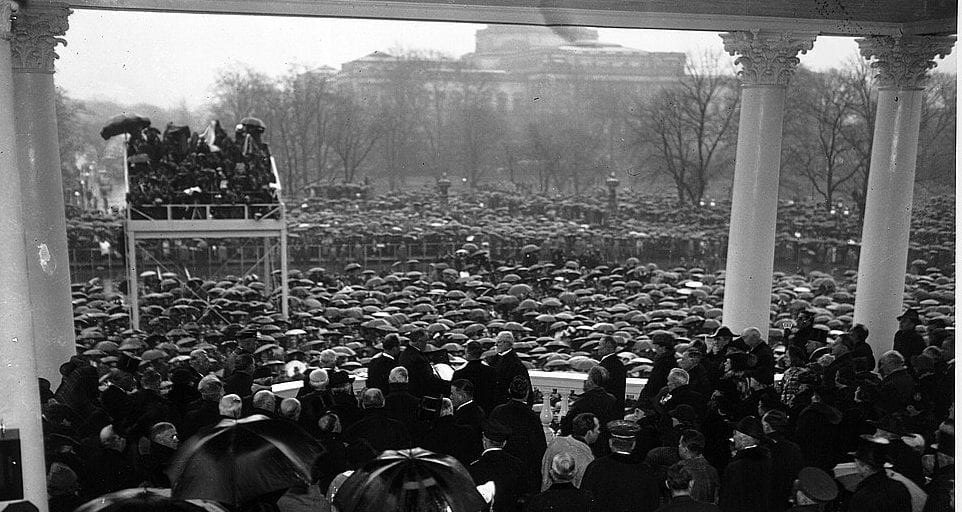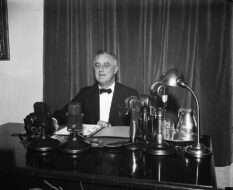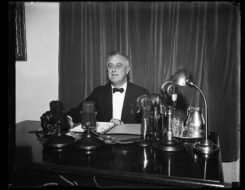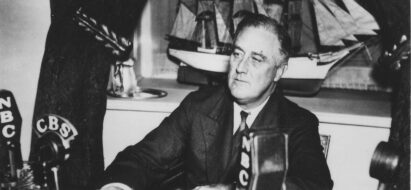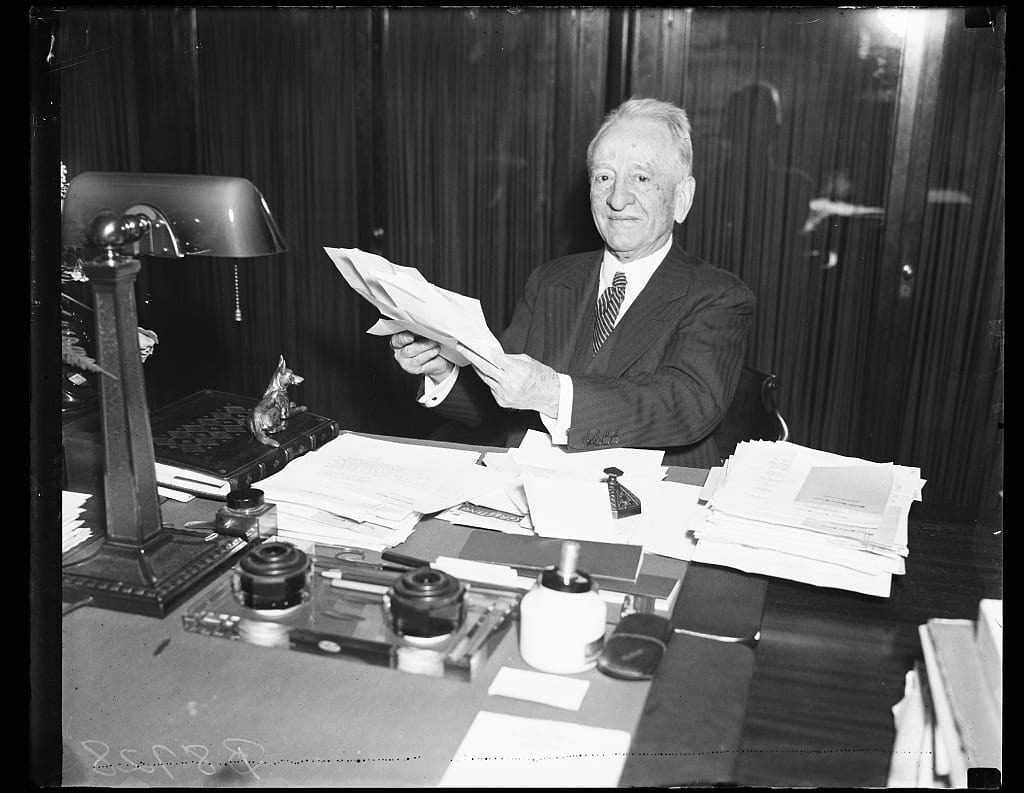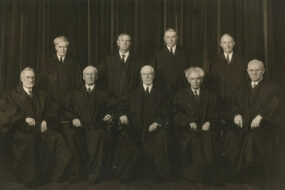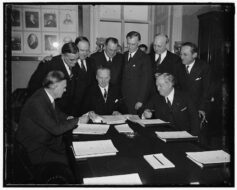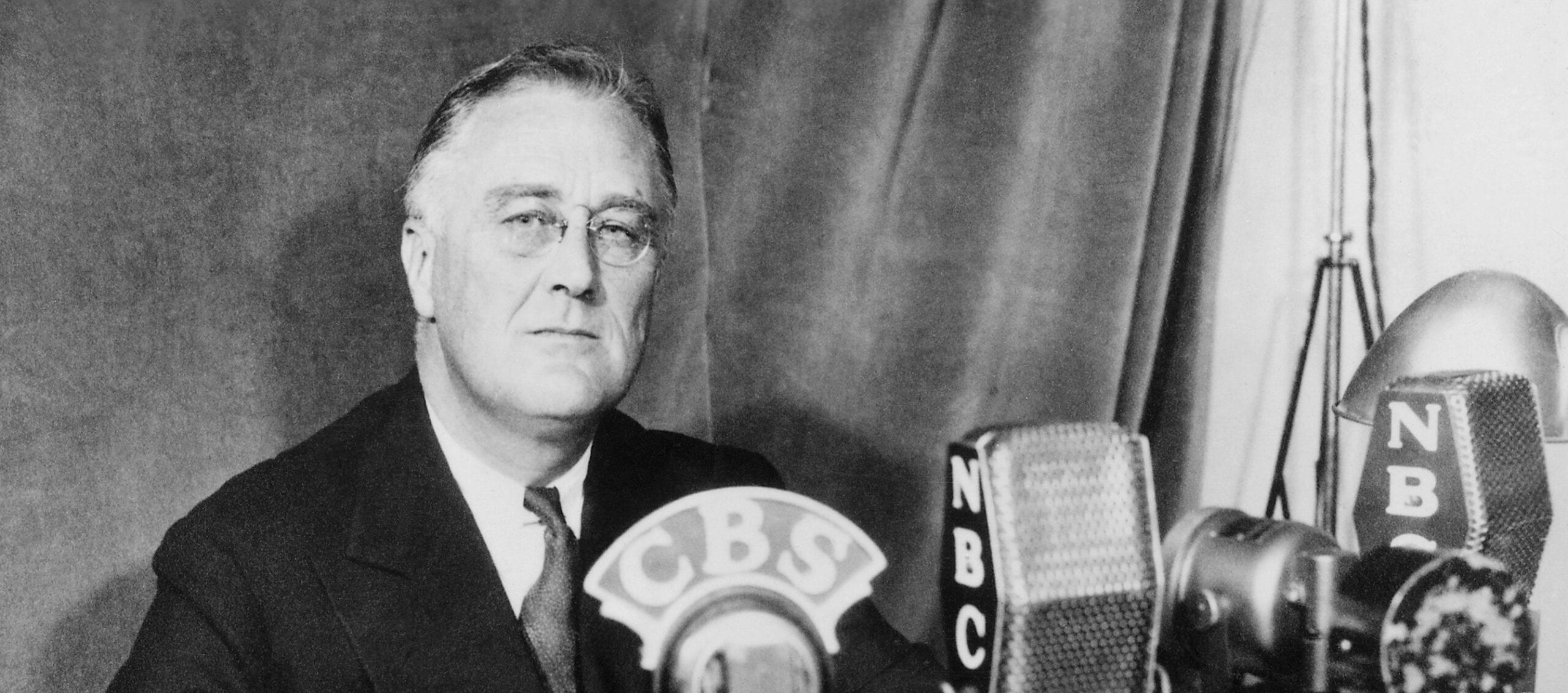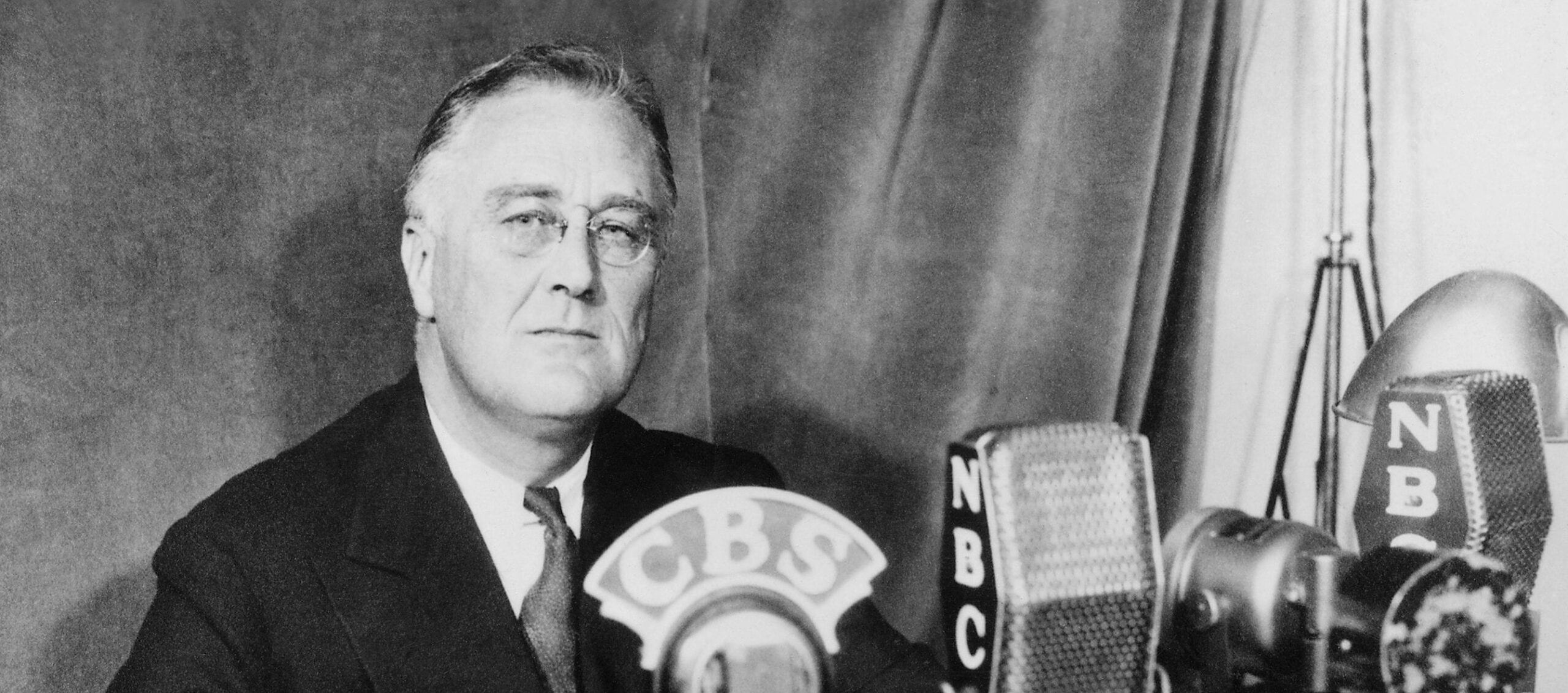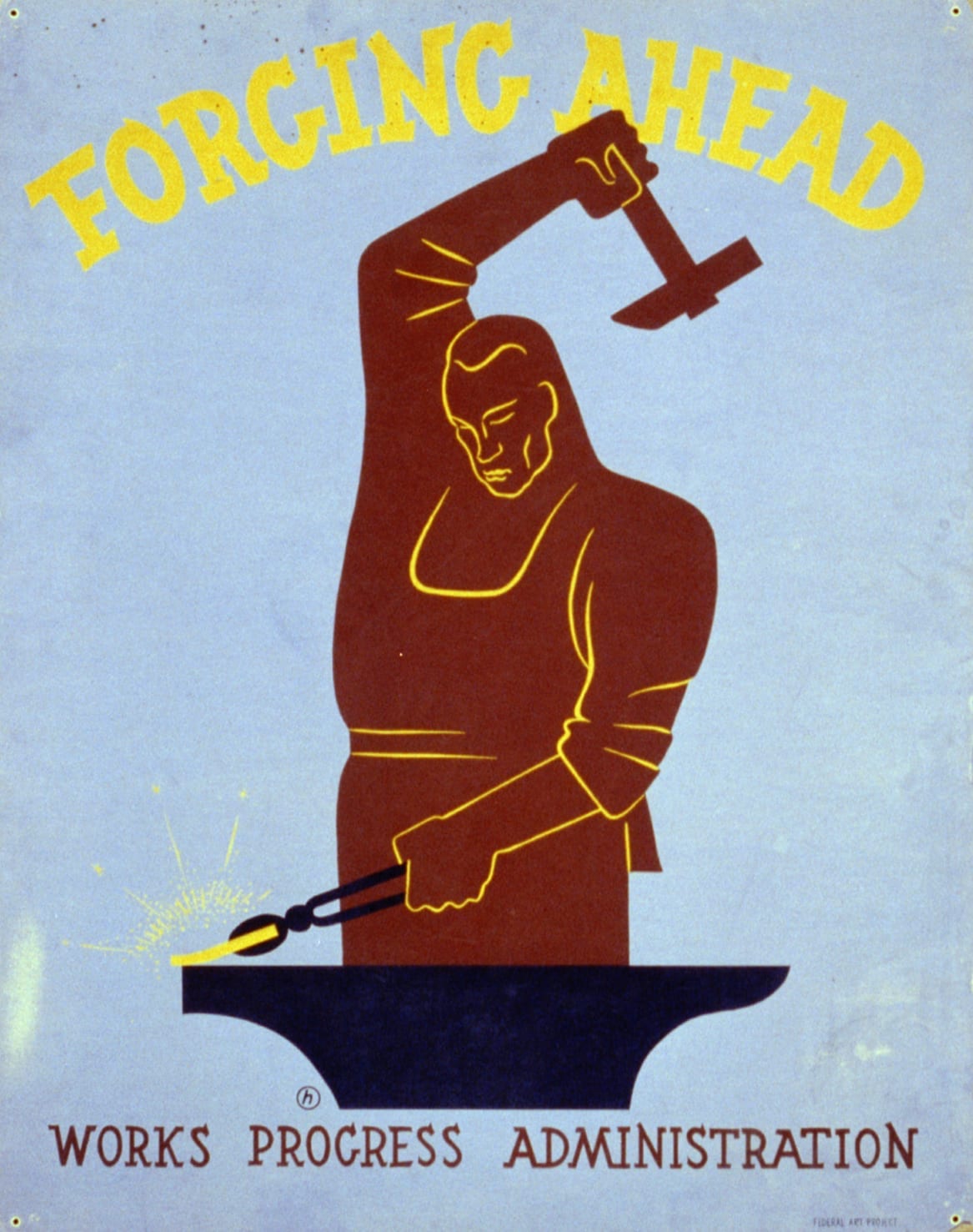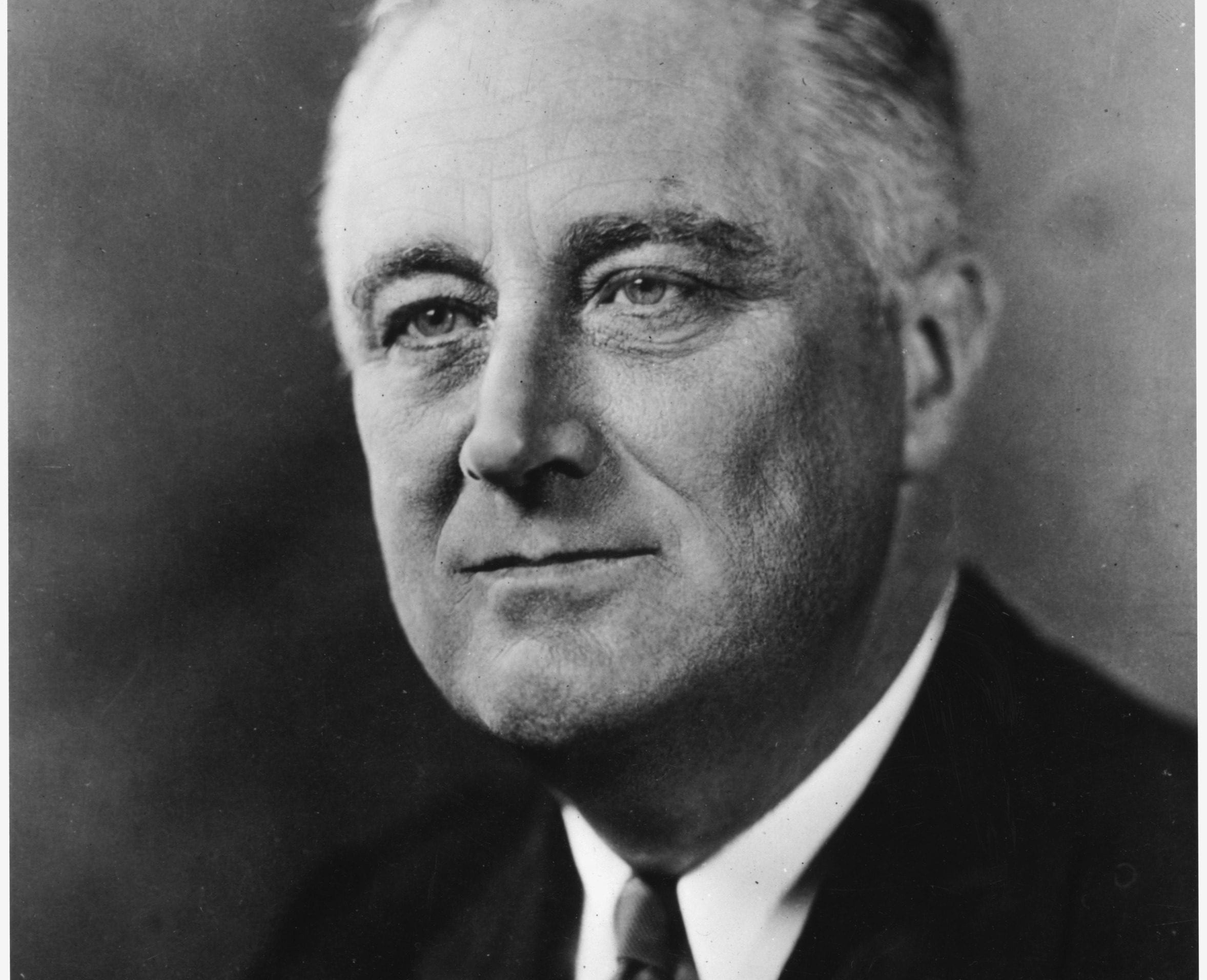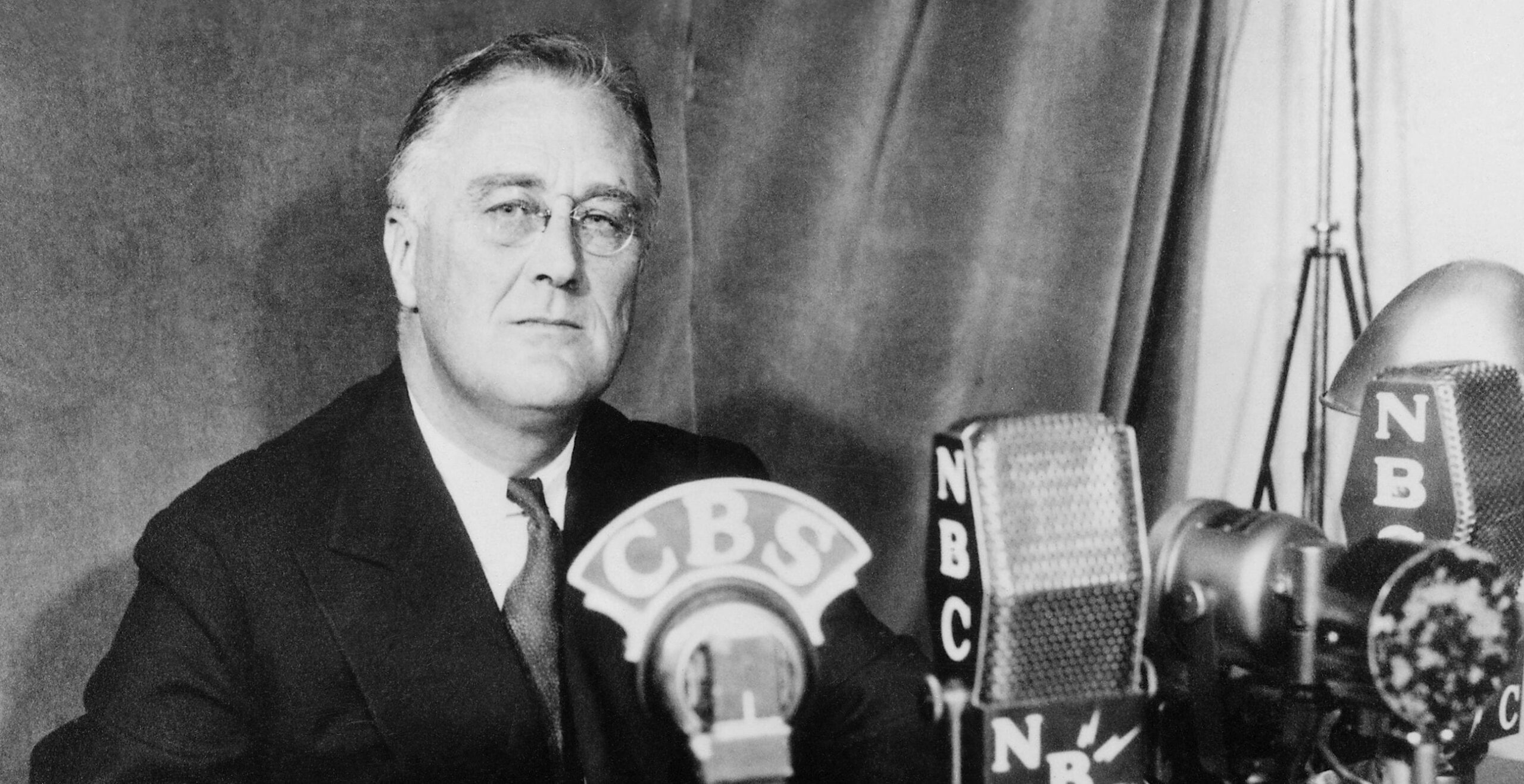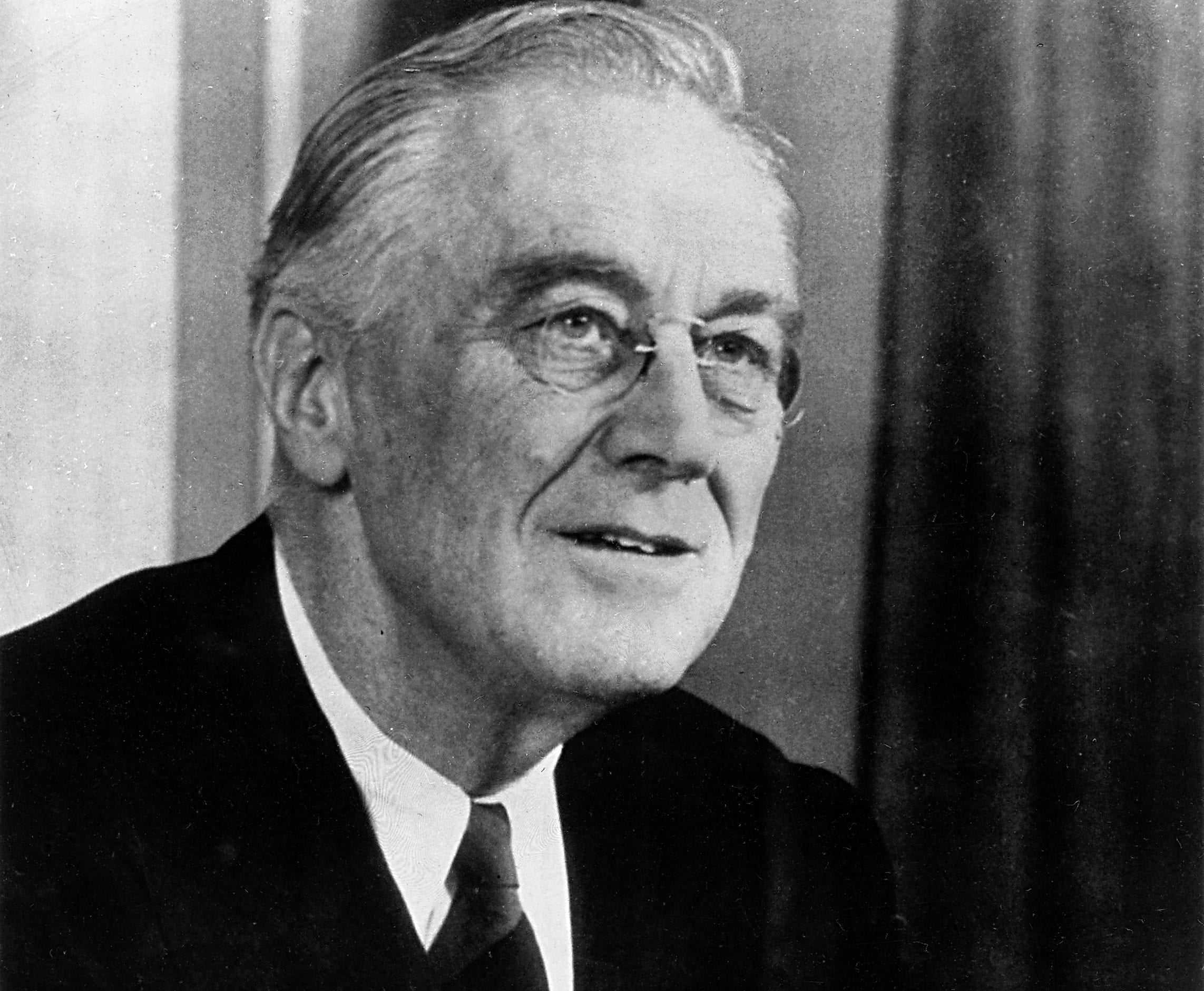Introduction
Only nine years after Myers (Myers v.s. U.S. (1926)), the Supreme Court revisited the removal power. This time, the question turned on a new law limiting the president’s power to remove. In 1914, Woodrow Wilson signed the Federal Trade Commission Act. The law established a commission to prevent unfair trade practices. In order to ensure that the commission remained nonpartisan, the law stipulated that its commissioners could be removed by the president only for cause, that is, for “inefficiency, neglect of duty, or malfeasance in office.” In the next several decades, Congress created more of these independent regulatory commissions (IRCs).
In 1934, Franklin D. Roosevelt removed William Humphrey, a Hoover appointee, who had been critical of the New Deal and with whom Roosevelt held deep differences over what constituted fair and unfair trade. After Humphrey’s death in 1934, his executor sued to recover his salary. Writing for a unanimous court, Justice George Sutherland ruled against the president and upheld the constitutionality of the 1914 law. His argument has served as the foundation for IRCs and the modern regulatory state, but the case has left unsettled the extent to which Congress may limit the president’s power to remove executive branch officials from office. Specifically, Justice Sutherland argued that Congress may create officials who may not be fired by the president because their duties are quasi-legislative or quasi-judicial rather than executive in nature.
—Jeremy D. Bailey
Source: United States Reports. Volume 295, Cases Adjudged in the Supreme Court at October Term, 1934 (Washington, D.C.: Government Printing Office, 1935), 618, 627–30.
Mr. Justice Sutherland delivered the opinion of the Court. . .
The office of postmaster is so essentially unlike the office now involved that the decision in the Myers case cannot be accepted as controlling our decision here. A postmaster is an executive officer restricted to the performance of executive functions. He is charged with no duty at all related to either the legislative or the judicial power. The actual decision in the Myers case finds support in the theory that such an officer is merely one of the units in the executive department and, hence, inherently subject to the exclusive and illimitable power of removal by the Chief Executive, whose subordinate and aid he is. Putting aside dicta, which may be followed if sufficiently persuasive but which are not controlling, the necessary reach of the decision goes far enough to include all purely executive officers. It goes no farther;ーmuch less does it include an officer who occupies no place in the executive department and who exercises no part of the executive power vested by the Constitution in the President.
The Federal Trade Commission is an administrative body created by Congress to carry into effect legislative policies embodied in the statute in accordance with the legislative standard therein prescribed, and to perform other specified duties as a legislative or as a judicial aid. Such a body cannot in any proper sense be characterized as an arm or an eye of the executive. Its duties are performed without executive leave and, in contemplation of the statute, must be free from executive control. In administering the provisions of the statute in respect of “unfair methods of competition” – that is to say, in filling in and administering the details embodied by that general standard – the commission acts in part quasi-legislatively and in part quasi-judicially. In making investigations and reports thereon for the information of Congress under §6, in aid of the legislative power, it acts as a legislative agency. Under §7, which authorizes the commission to act as a master in chancery under rules prescribed by the court, it acts as an agency of the judiciary. To the extent that it exercises any executive function – as distinguished from the executive power in the constitutional sense – it does so in the discharge and effectuation of its quasi-legislative or quasi-judicial powers, or as an agency of the legislative or judicial departments of government.
If Congress is without authority to prescribe causes for removal of members of the trade commission and limit executive power of removal accordingly, that power at once becomes practically all-inclusive in respect to civil officers with the exception of the judiciary provided for by the Constitution. The Solicitor General, at the bar, apparently recognizing this to be true, with commendable candor, agreed that this view in respect to the removability of members of the Federal Trade Commission necessitated a like view in respect of the Interstate Commerce Commission and the Courts of Claims. We are thus confronted with the serious question whether not only the members of these quasi-legislative and quasi-judicial bodies, but the judges of the legislative Court of Claims, exercising judicial power (Williams v. United States, 289 U.S. 553, 565-567), continue in the office only at the pleasure of the President.
We think it plain under the Constitution that illimitable power of removal is not possessed by the President in respect of officers of the character of those just named. The authority of Congress, in creating quasi-legislative or quasi-judicial agencies, to require them to act in discharge of their duties independently of executive control cannot well be doubted, and that authority includes, as an appropriate incident, power to fix the period during which they shall continue in office, and to forbid their removal except for cause in the meantime. For it is quite evident that one who holds his office only during the pleasure of another, cannot be depended to maintain an attitude of independence against the latter’s will.
The fundamental necessity of maintaining each of the three general departments of government entirely free from the control or coercive influence, direct or indirect, of either of the others, has often been stressed and is hardly open to serious question. So much is implied in the very fact of the separation of powers of these departments by the Constitution; and in the rule which recognizes their essential co-equality. The sound application of a principle that makes one master in his own house precludes him from imposing his control in the house of another who is master there. James Wilson, one of the framers of the Constitution and a former justice of this court, said that the independence of each department required that its proceedings “should be free from the remotest influence, direct or indirect, of either of the other two powers.” (Andrews, The Works of James Wilson (1896), vol. 1, p. 367.) And Mr. Justice Story in the first volume of his work on the Constitution, 4th ed., §530, citing No. 48 of the Federalist, said that neither of the departments in reference to each other “ought to possess, directly or indirectly, an overruling influence in the administration of their respective powers.”. . .
The power of removal here claimed by the President falls within this principle, since its coercive influence threatens the independence of a commission, which is not only wholly disconnected from the executive department, but which, as already fully appears, was created by Congress as a means of carrying into operation legislation and judicial powers, as an agency of the legislative and judicial departments.
In light of the question now under consideration, we have reexamined the precedents referred to in the Myers case, and find nothing in them to justify a conclusion contrary to that which we have reached. . . .


